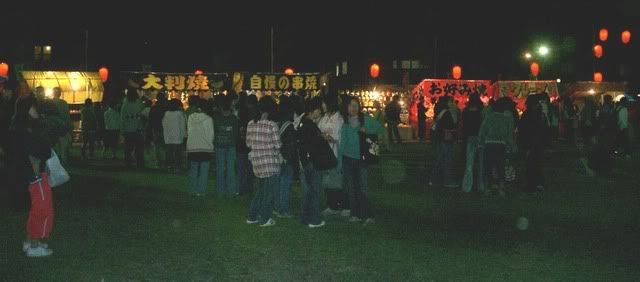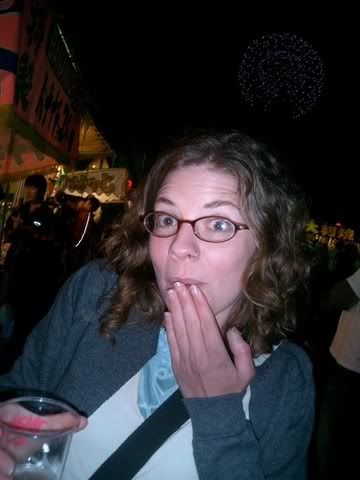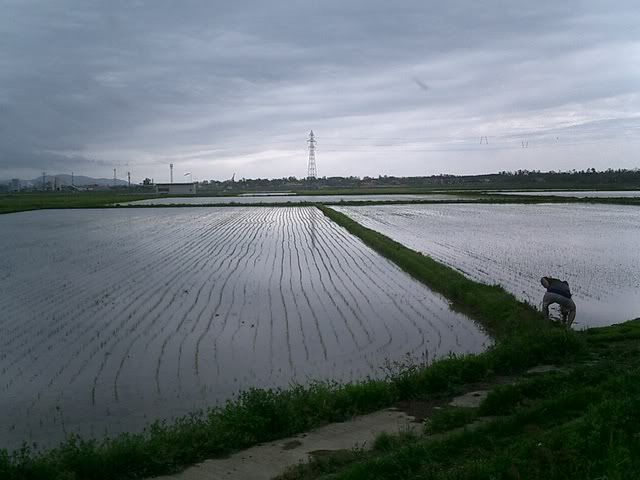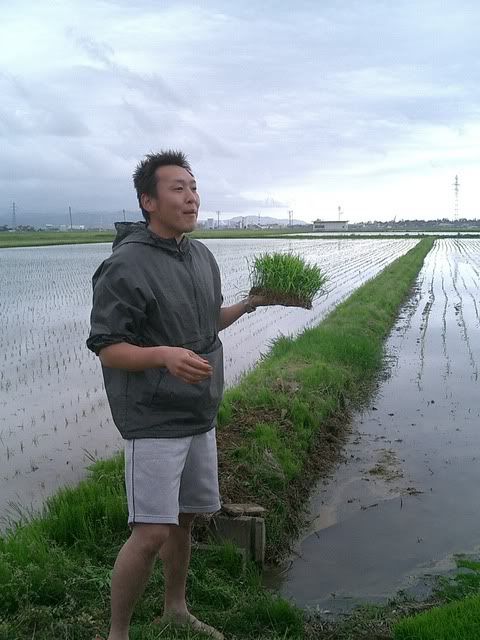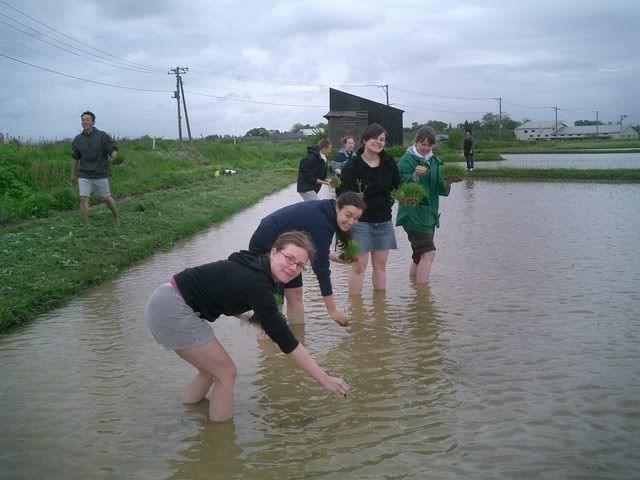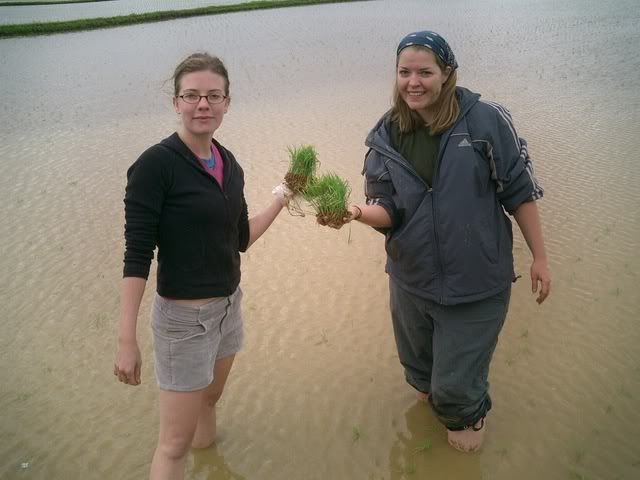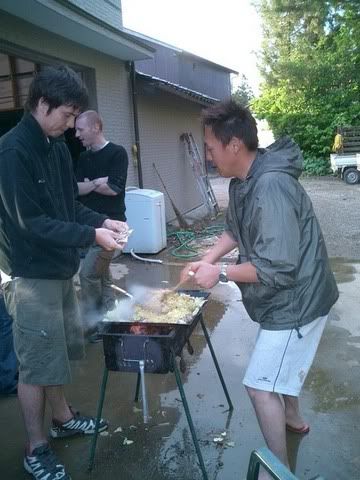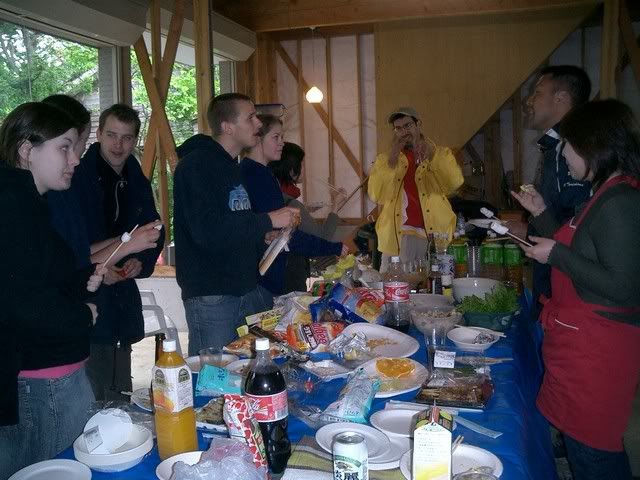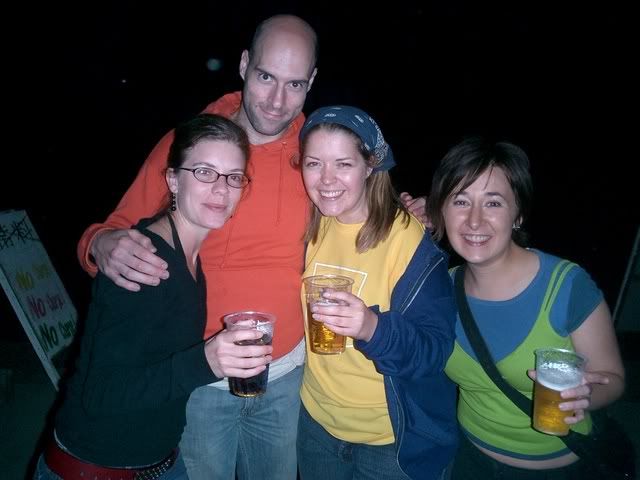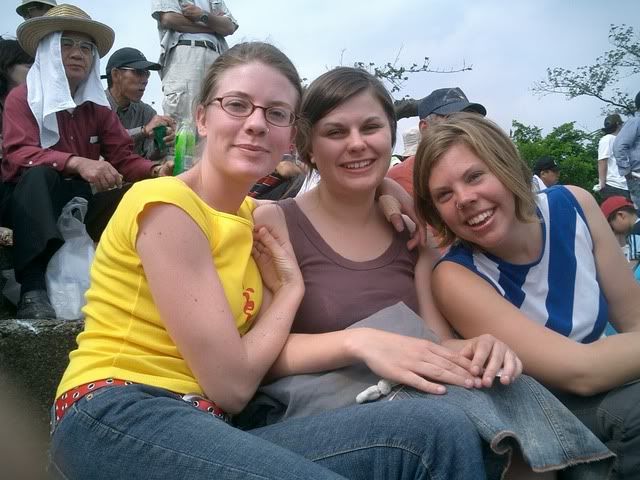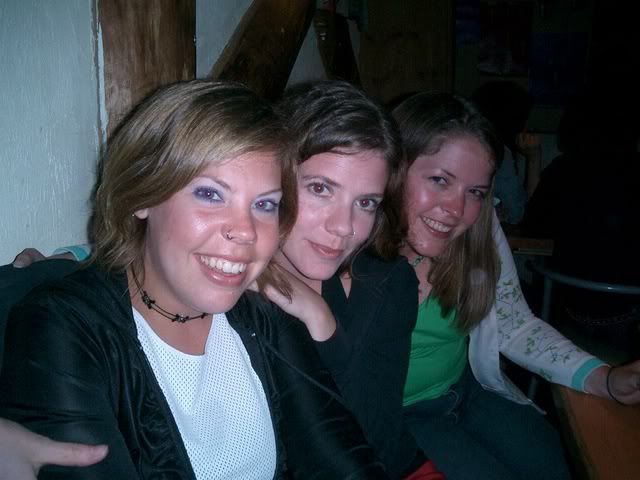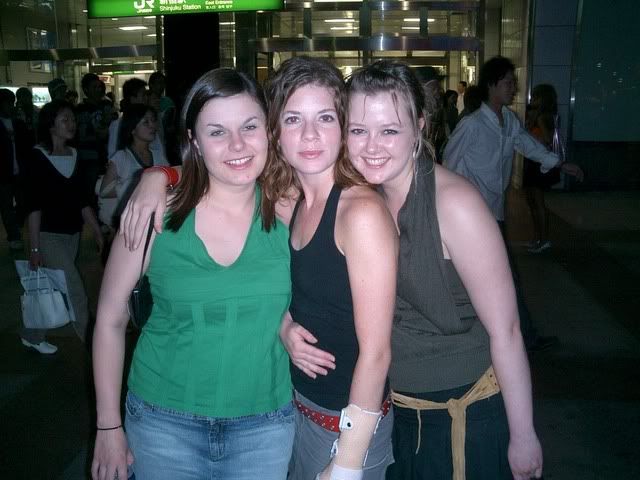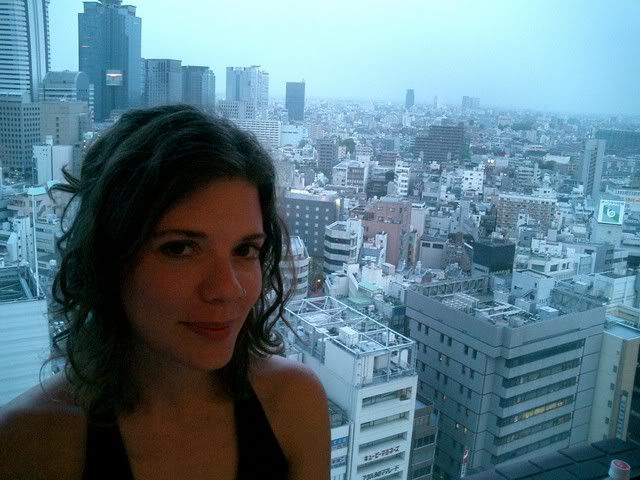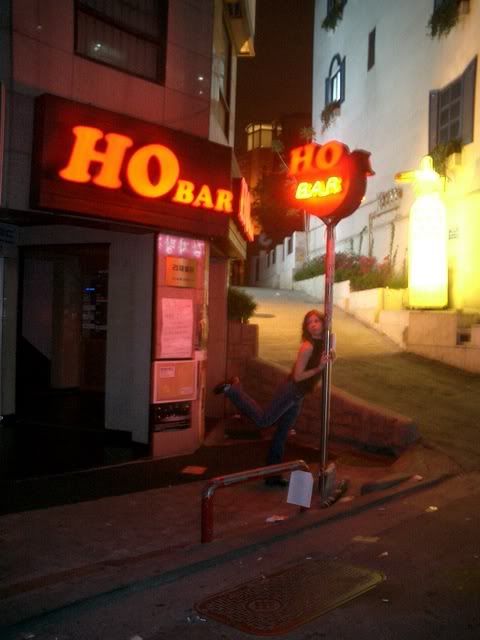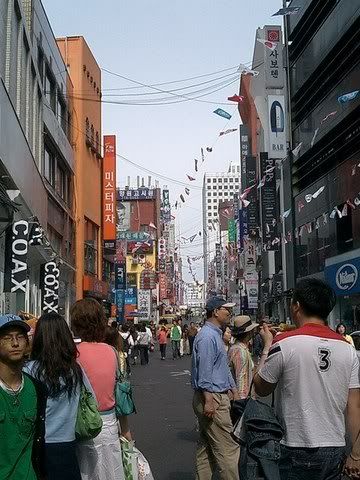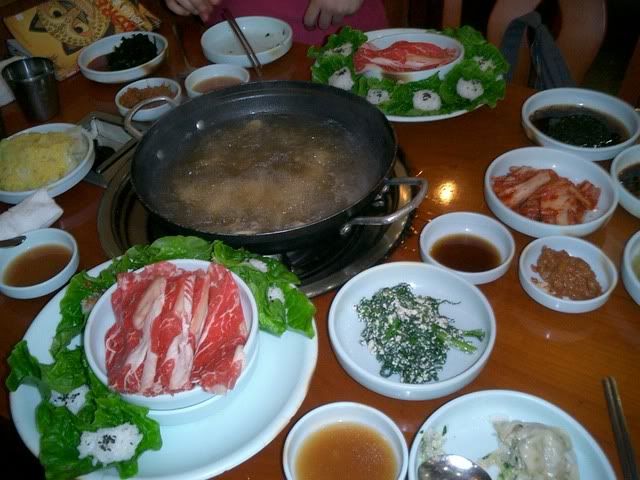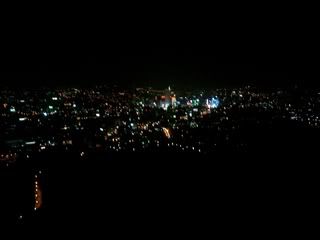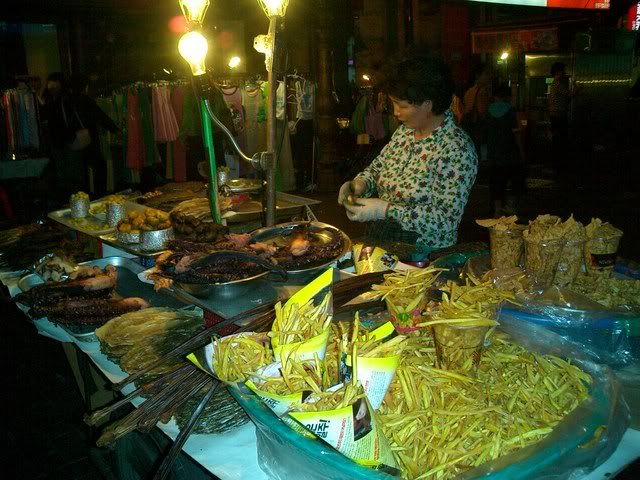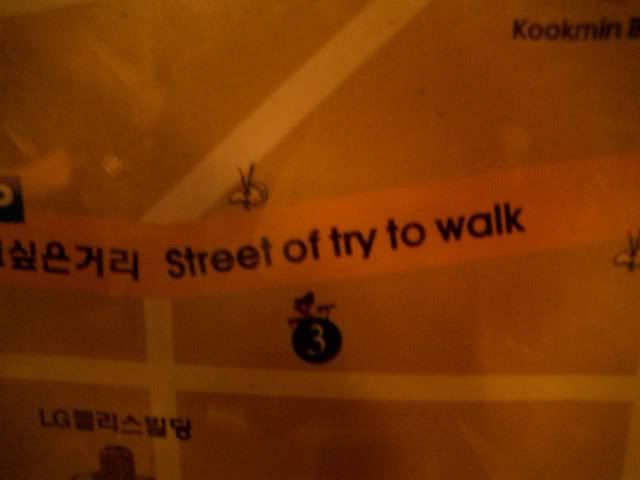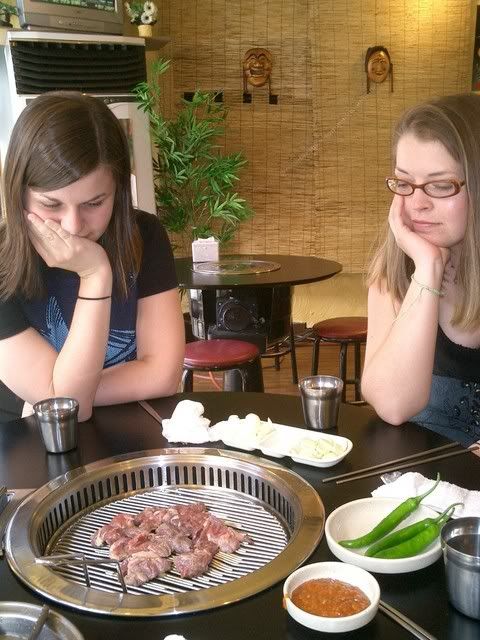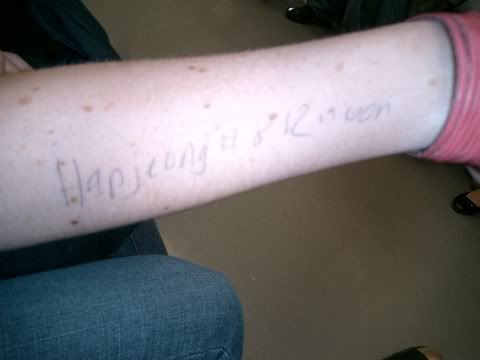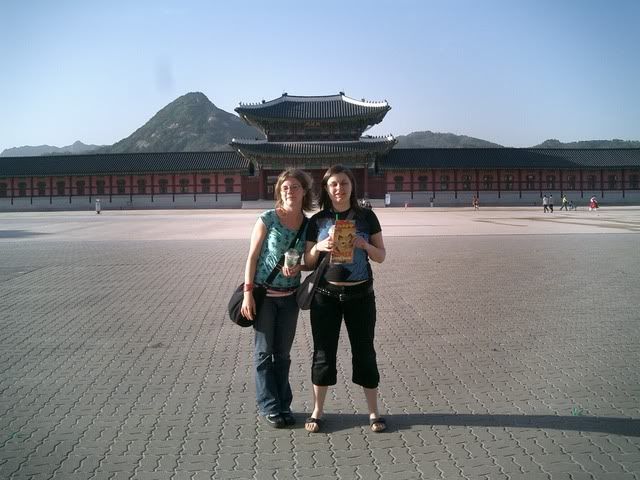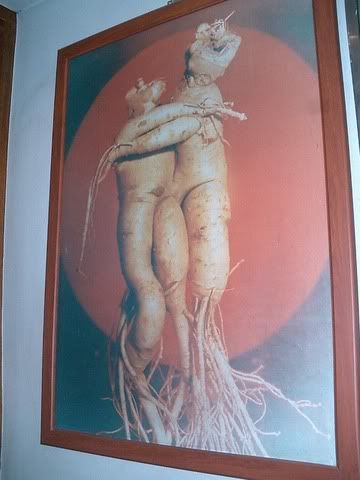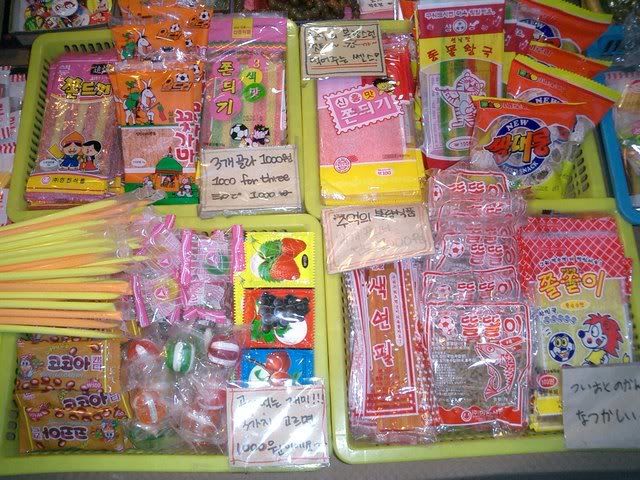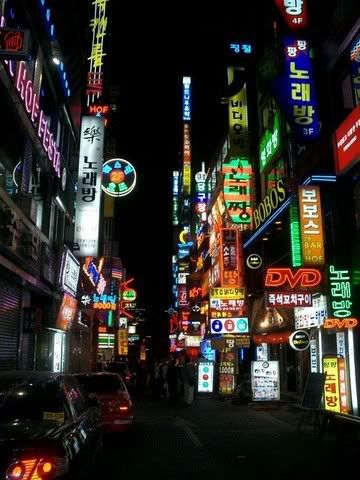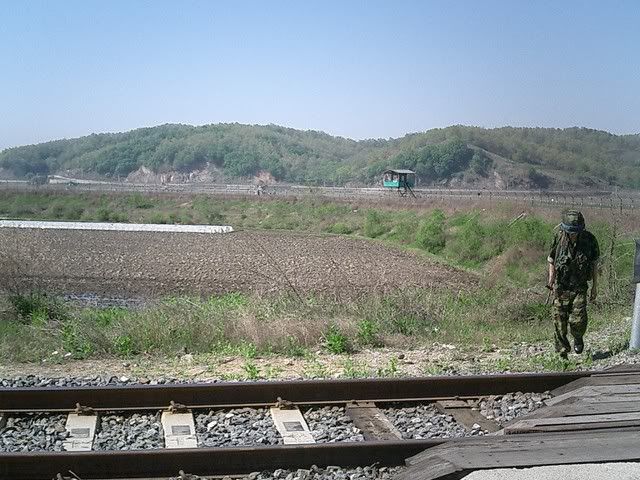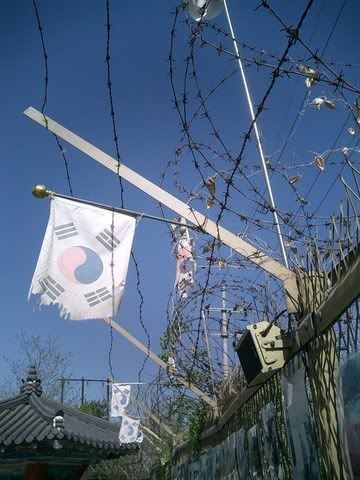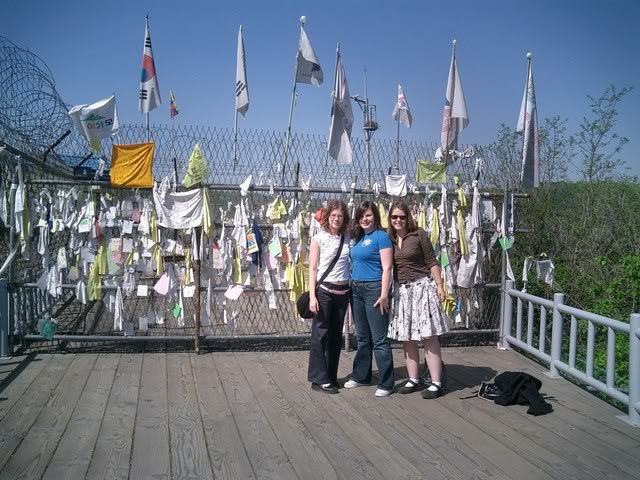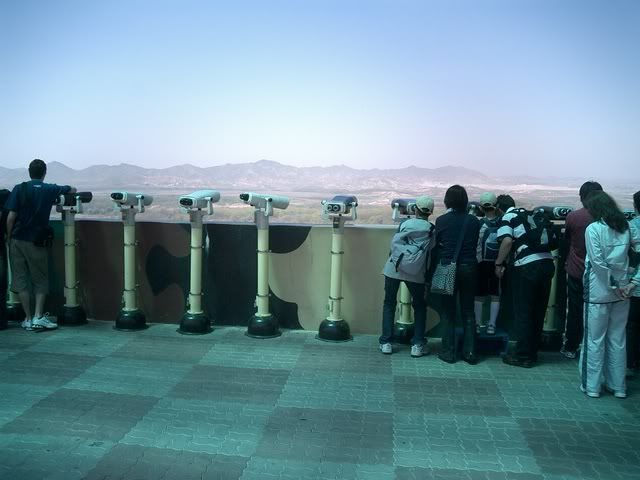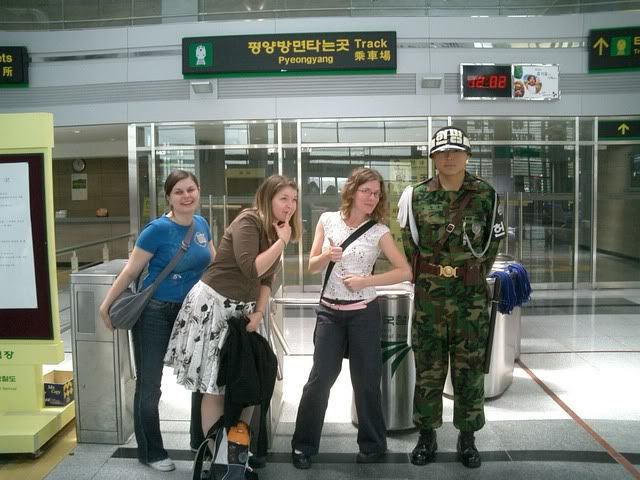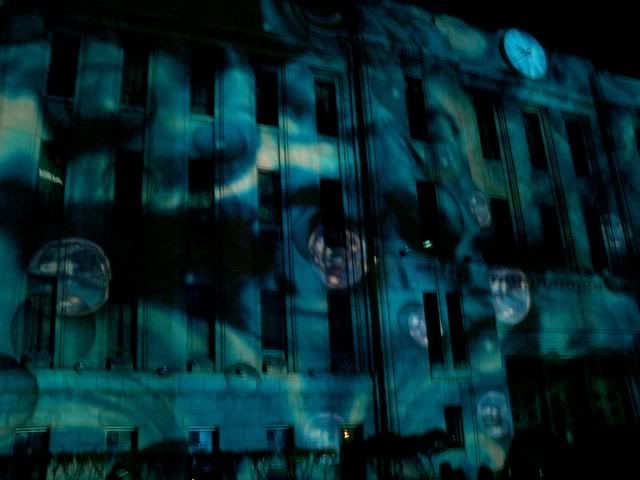Part deux
our laundry, washed with rain water that's collected in a huge vat. same water we used for showers and drinking and cooking. [unlike the locals, we had to boil the water before we could stomach it.]
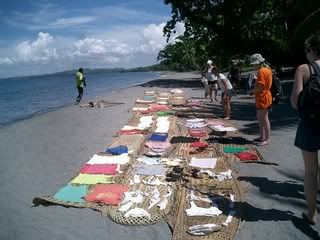
we went to the lagoon in bau village and i saw this boy playing with a boat he made.
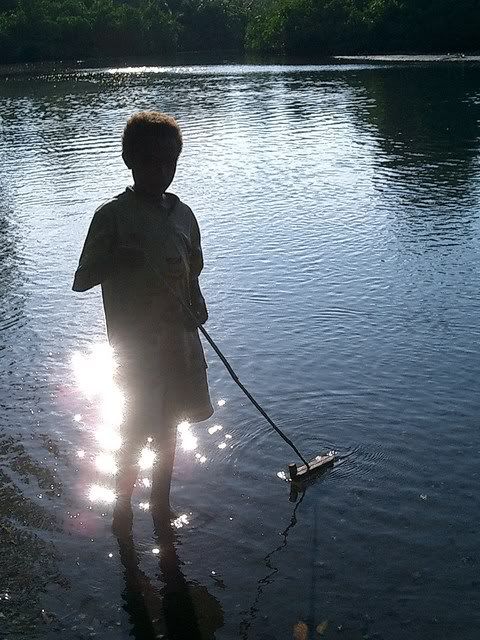
this is marta. she really warmed to me. we're out on her canoe.
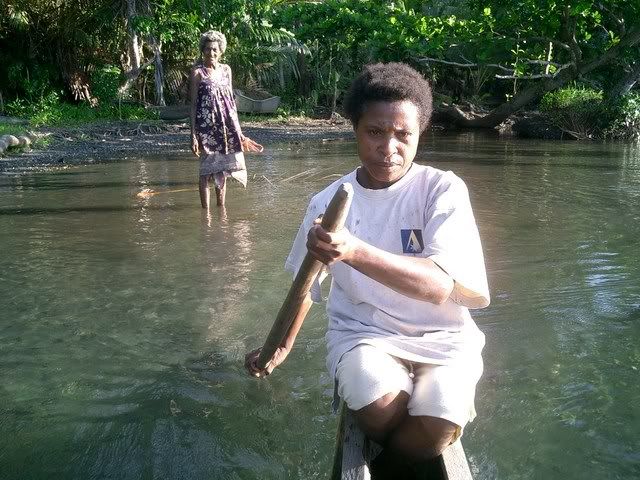
in the lagoon, we all hopped of the boat, landing in calf deep squishy mud. as i felt around with my toes i begin to clutch and bring up all sorts of shells. her daughter, she and i started feeling for clams [maybe] and we found enough for them to have for dinner.
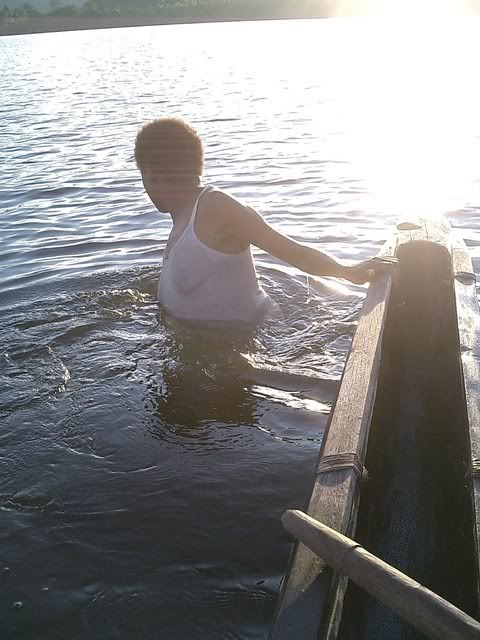
silouette of preacher at sunrise service on easter sunday.
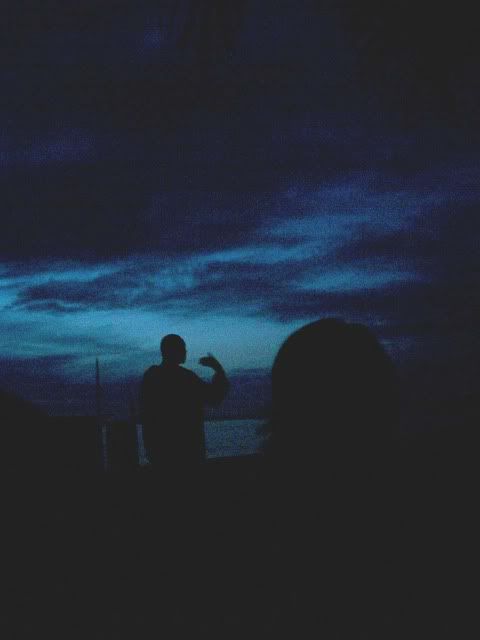
the morning was beautiful.
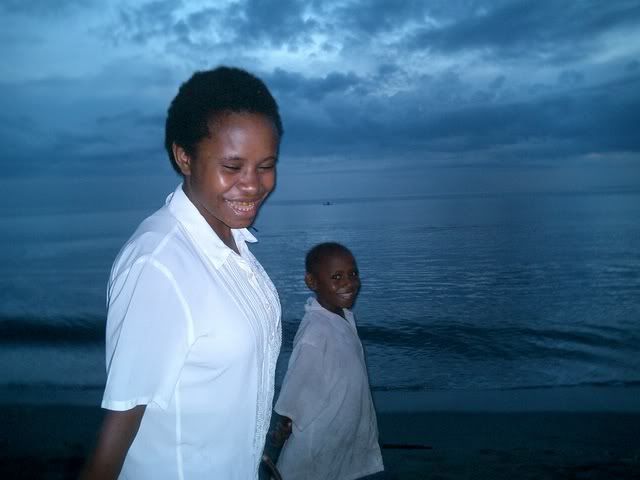
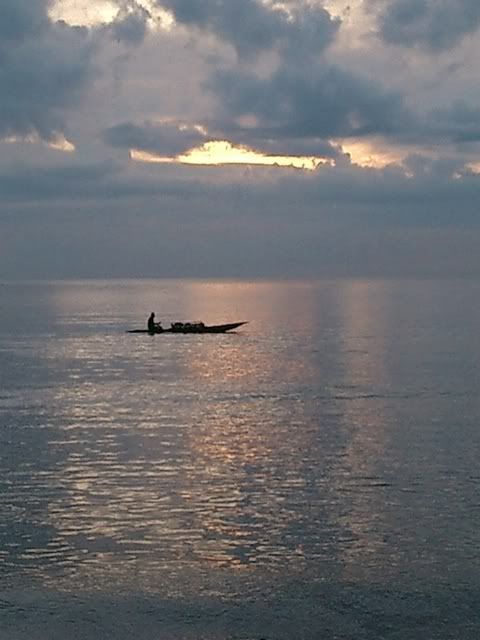
they dressed for the service. since they have no cd players, the discs have become pure decoration. not sure where this one came from. they had no idea who toni braxton is.
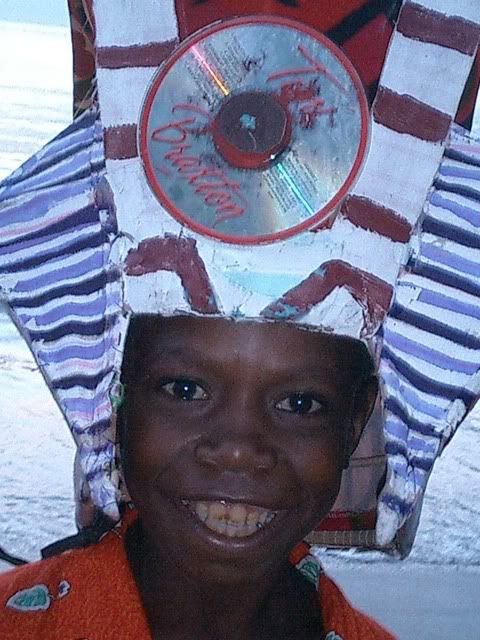
they grow a lot of rice. this is me trying to pound the husks of off the grains.
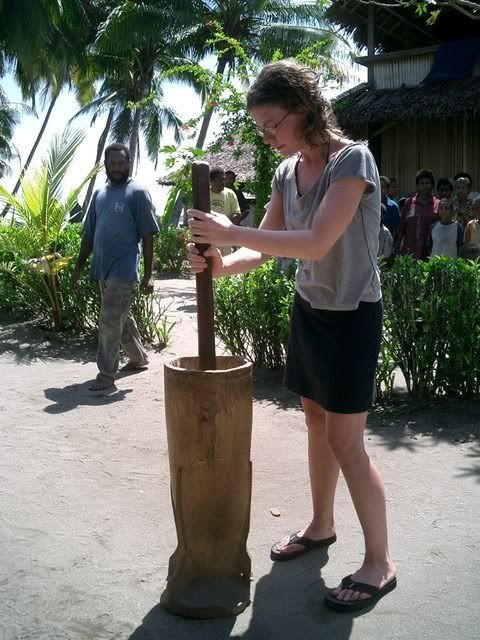
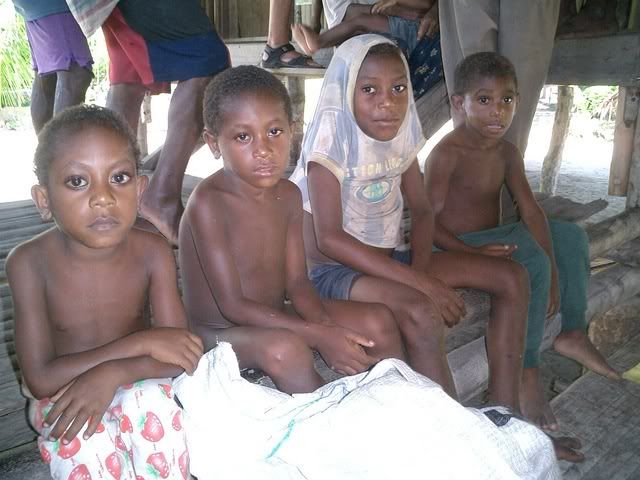
this family is really productive. they make all sorts of goods from coconut, like soap, for the village. here they are pressing the dried shreds of coconut meat and collecting the oil.
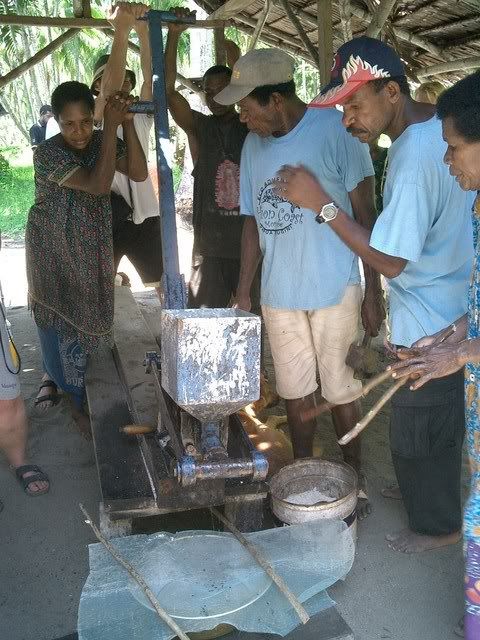
this is joe, a warm-hearted intelligent government worker who accompanied us on our journey. he was hilarious, easy-going and really curious, always asking me questions about american and japanese culture. saying goodbye to him, after all we'd experienced together and shared was tough.
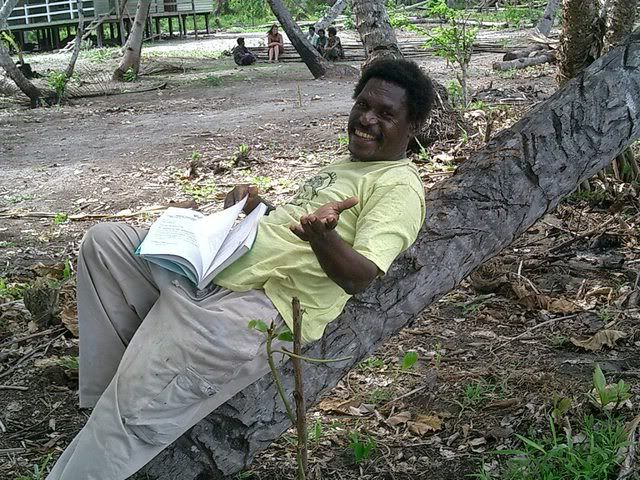
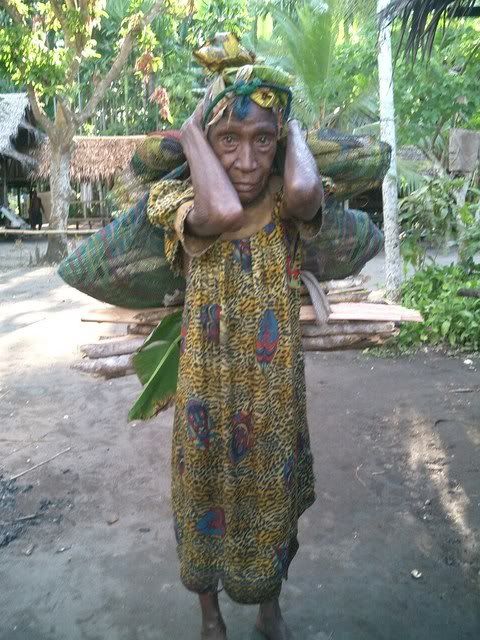
that's sara on the far right making a palm crown for me. can you believe the knives these kids tote around?
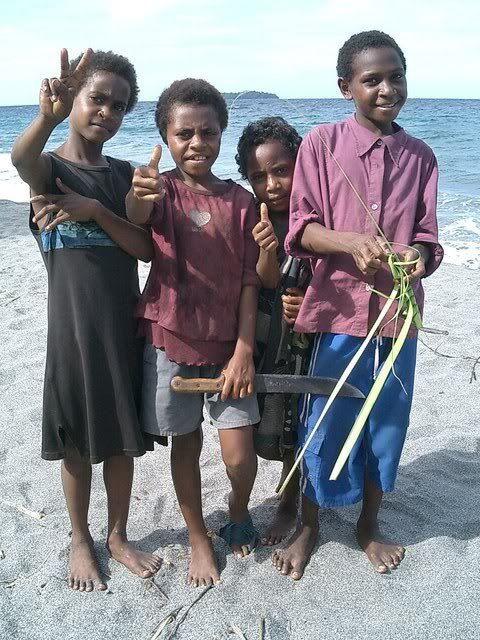
everyone in the village is skilled at this jumping game. i picked it up fairly quickly but never quite mastered the beautiful song that accompanies it.
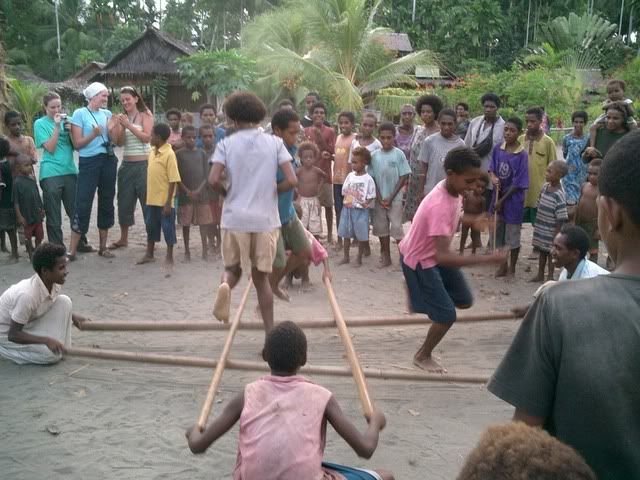
everyone here is sporting the betel nut mouth, their main vice. betel looks a bit like a hard fig. you bite the pod and pull the round ball of meat out the middle. they cook seashells and coral on a big piece of corrugated metal over a fire and then pulverize it. you dip a stick of mustard root into the shell powder and chew it with the betel nut. a chemical reaction occurs, the mush turns red and heats up and creates a lot of juice. the sensation is a bit like downing a double expresso, a talkative caffeine buzz that lasts about 20 minutes. it also makes you spit. a lot.
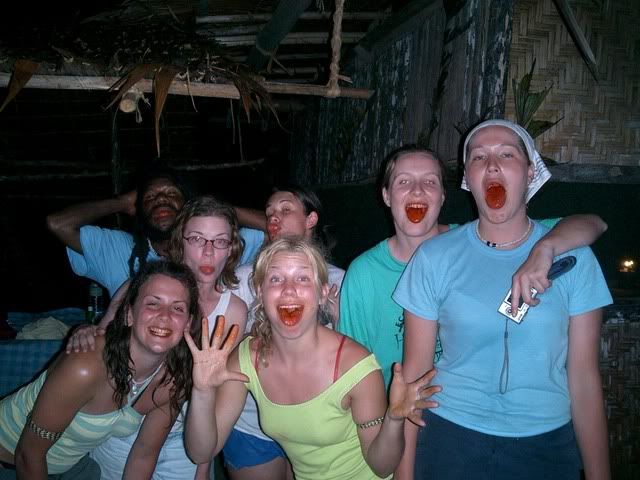
our welcome to unu.
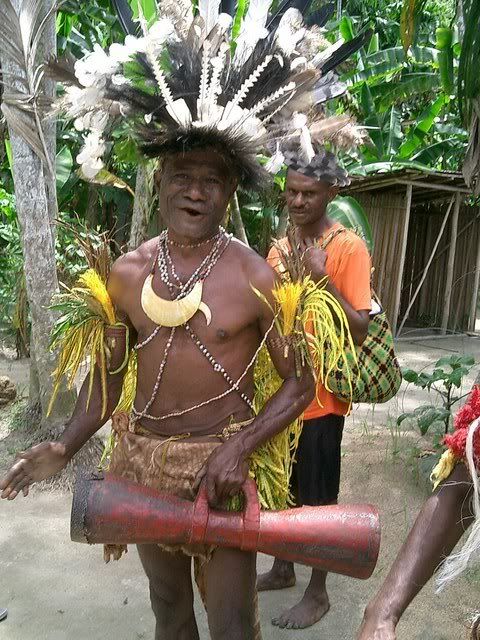
a village home in unu.
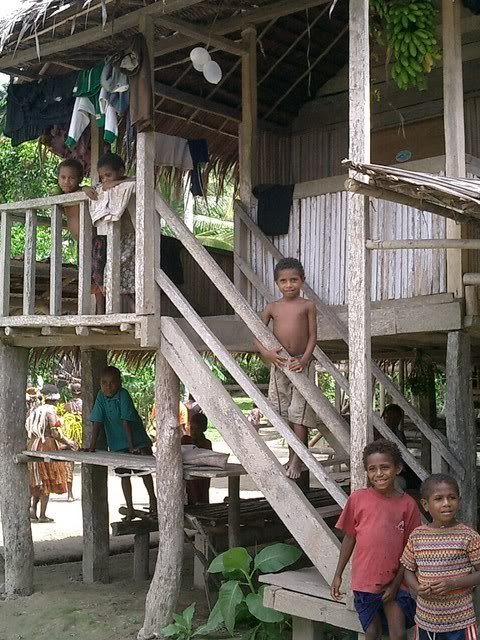
our welcome to a school in popoe village [i think].
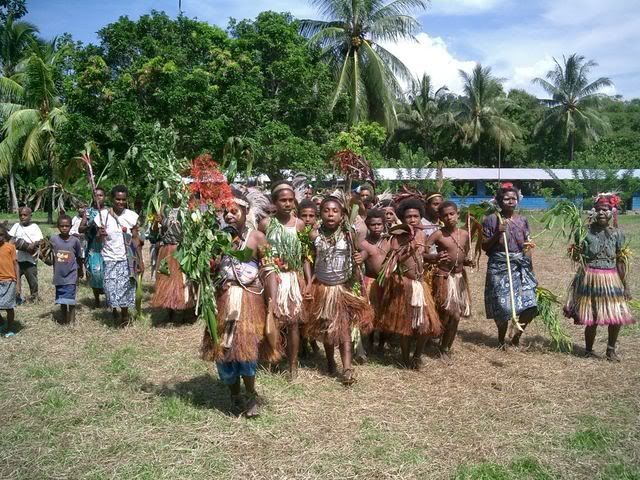
what a view from the school.
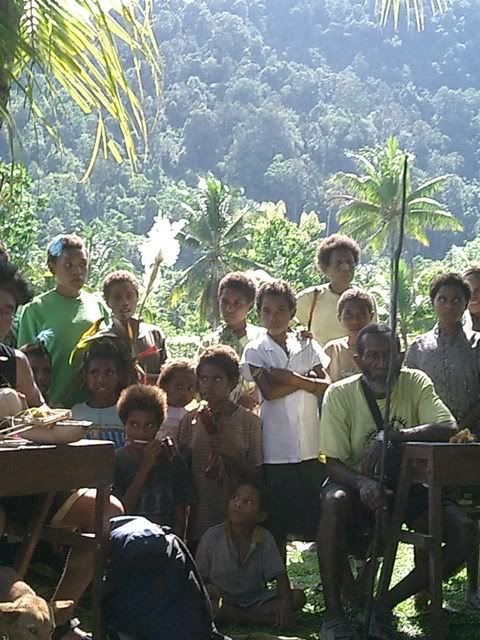
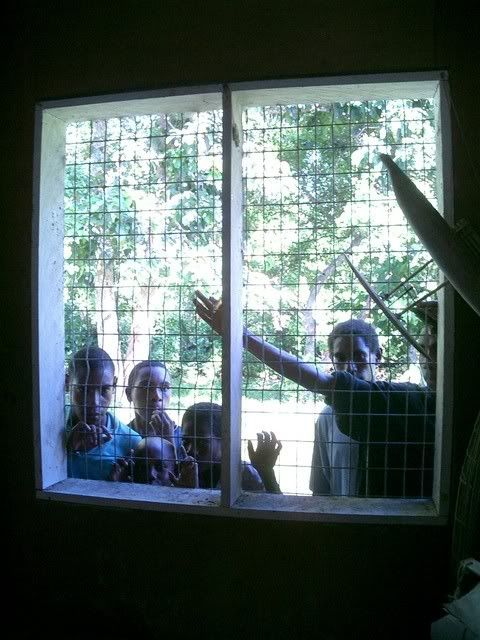
the route the kids walk from village to school.
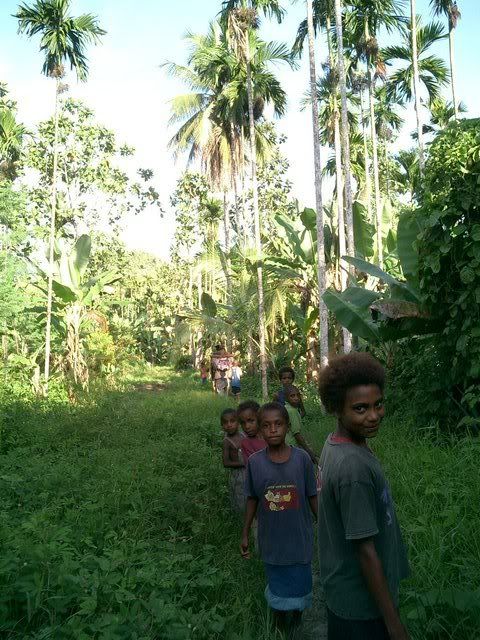
this woman has had 3 sets of twins. imagine giving birth in the middle of nowhere without an epidural[sp.] to that many children. she's tough.
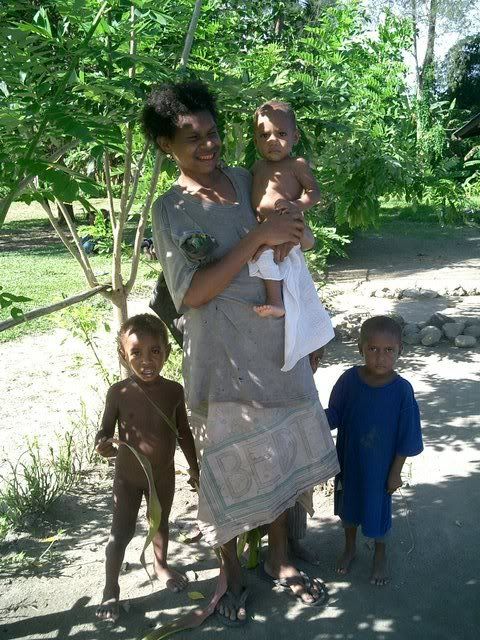
another shot of me dancing...imagine that. the girl on the right gave me the headdress and yellow wraps. i was always up in the middle of the singsings, the word for a singing and dancing event.
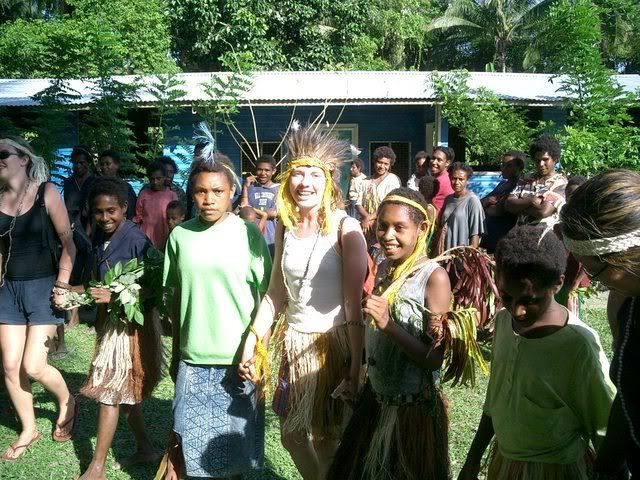
this is in waria valley. you walk the path through a number of small villages that are really close together. the villagers are grouped by tribe. upon arriving in png, we drew names to see which tribe we would belong to. i am a wapo, or eagle. our job is to keep the gardens. when these people realized that my tribal affiliation is the same as theirs they went wild, embracing me and giving me things. they offered to let me move into an empty structure across the way and said they would find a husband for me. it was tempting, briefly. [you must marry out of your tribe. the children will belong to the mother's tribe.]
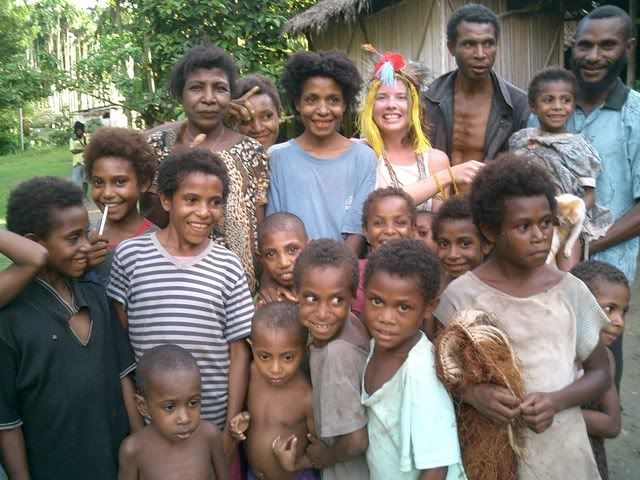
another small village along the waria valley road. this clearing is used for meetings and bonfires and evening festivities when the whole community gathers together.
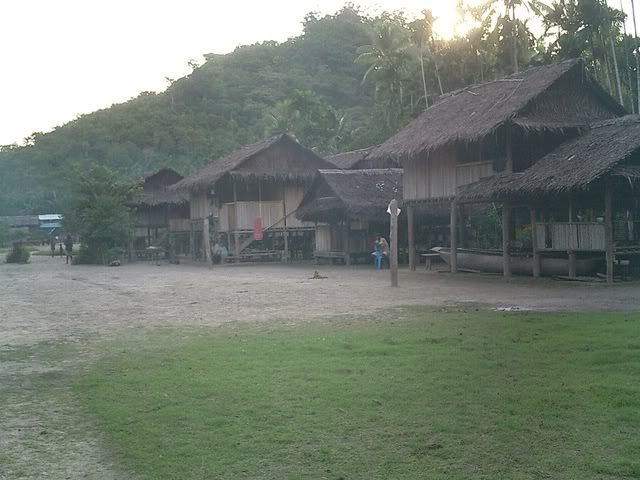
they are reliant on natural water sources which explains why all the settlements are near a river, lagoon or ocean. there are no roads here [no need because they have no cars] only footpaths. most traveling is done by boat, our main transportation once arriving.
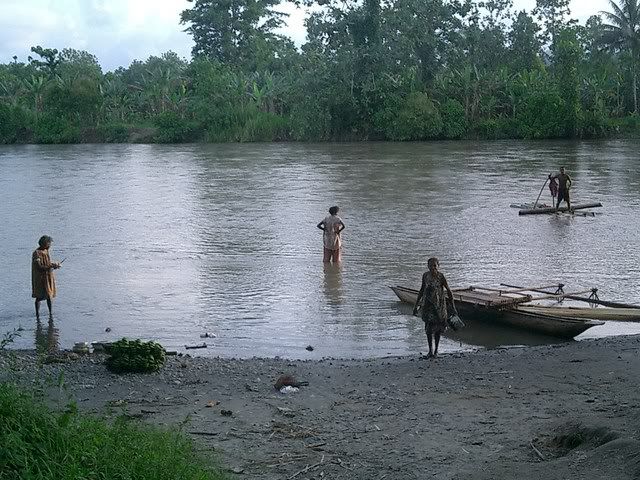
villagers coming out to send us off.
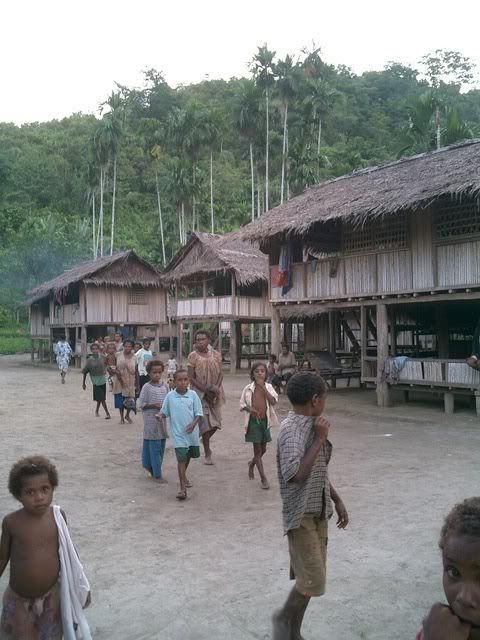
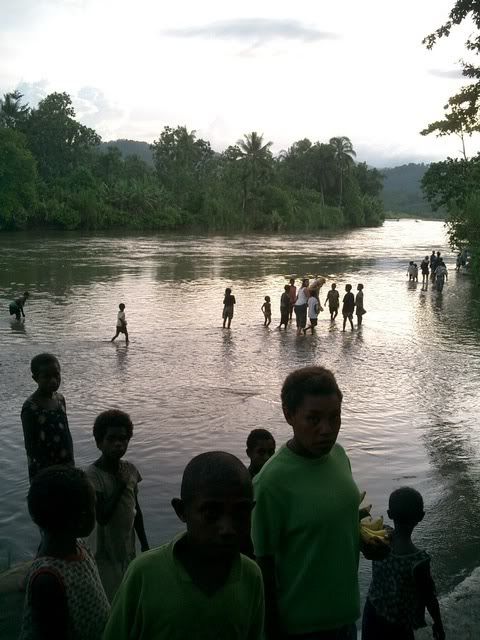
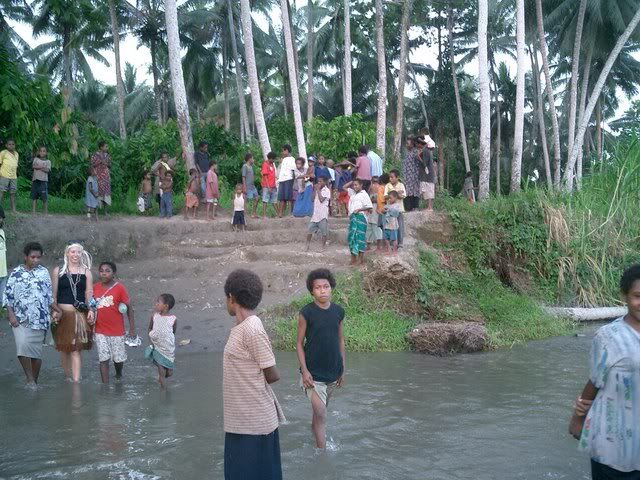
they adorned me with beautiful feathers and fresh flowers.
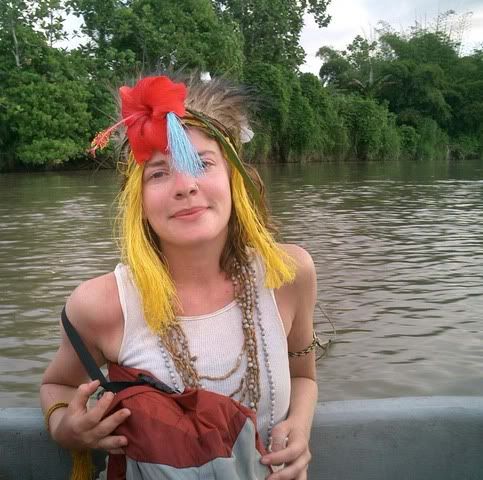
later that night after the singsing with zia, one of our guides who is from the waria valley.
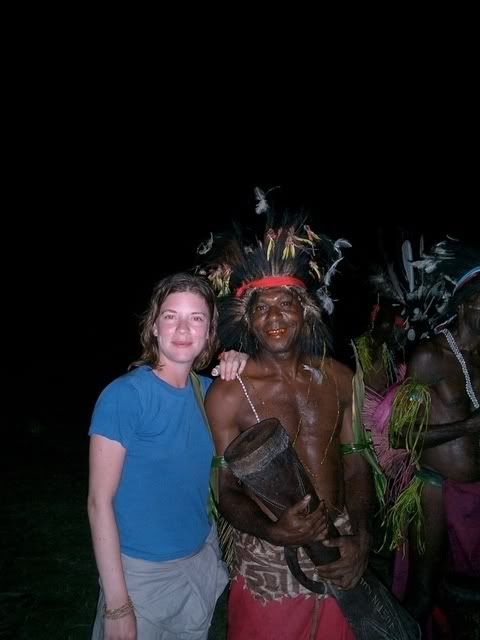
these are zia's parents.
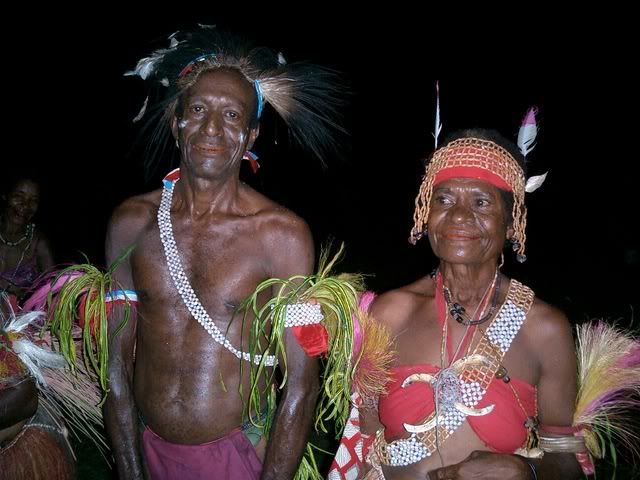
the kids were so friendly and curious. although this little one couldn't speak english, he wasn't frightened to approach me. their kind disposition is obvious which is such a stark contrast to most japanese people.
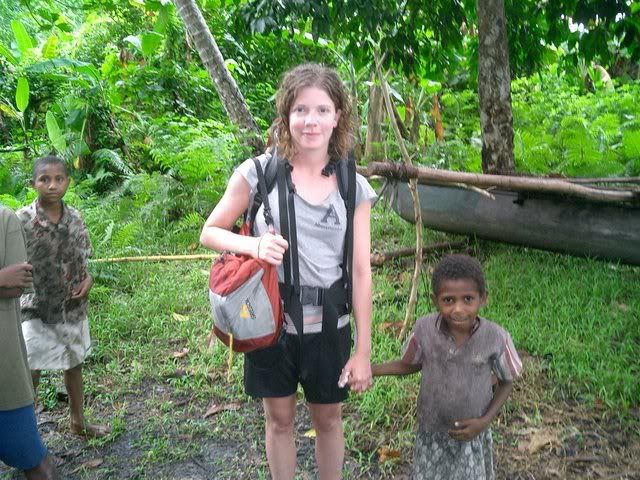
next day we headed to owazi village where we met these kids.
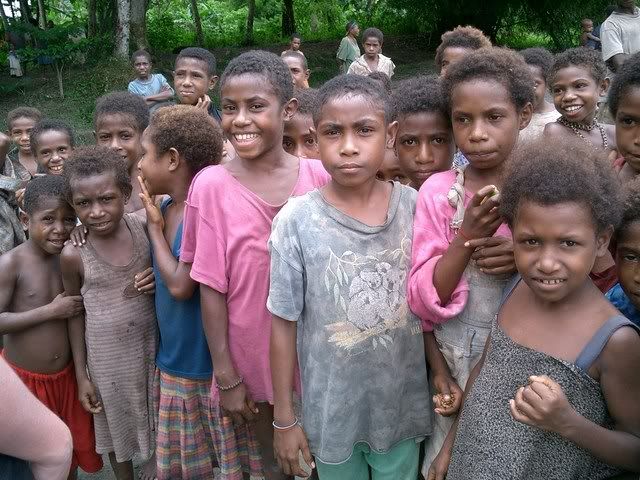
look at those eyes.
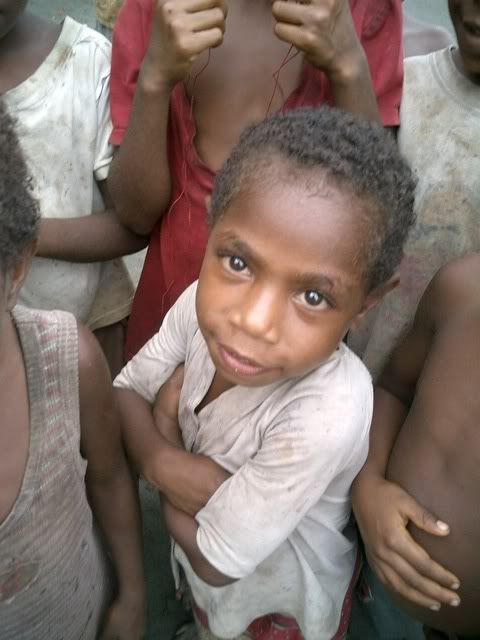
the welcome dance.
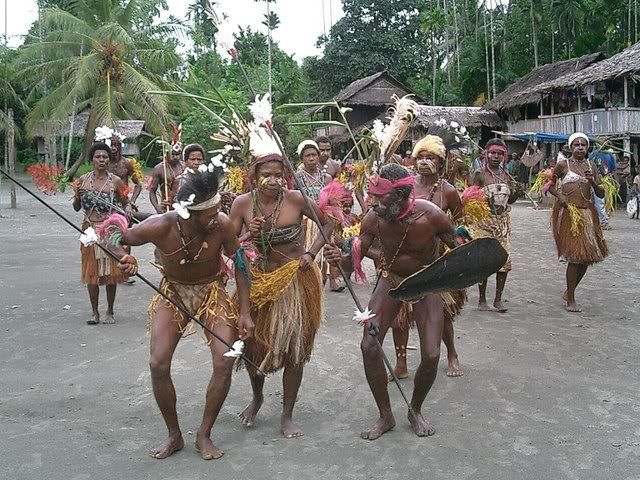
the eldest female villager who i conned into teaching me the dance. she broke off some tree limbs for me to dance with.
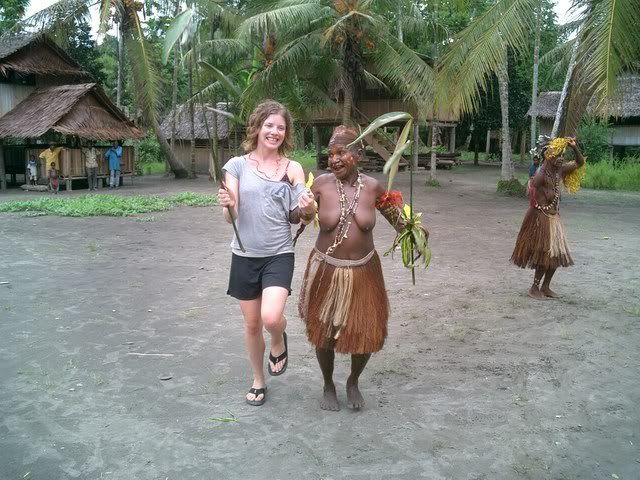
she was so affectionate, showering me with small gifts and constantly embracing me and holding my hand.
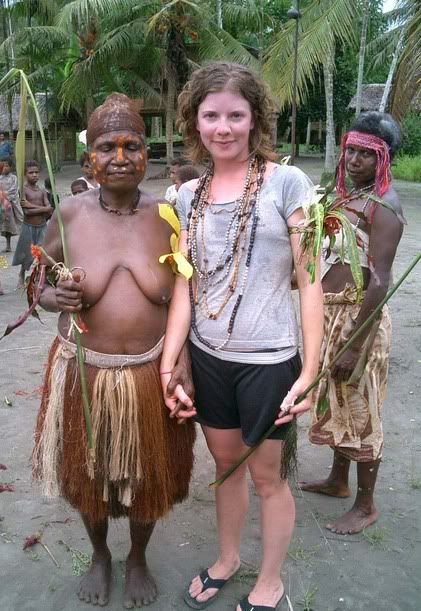
it was a bit scary trying to traverse the slippery rocks up to the top of the waterfall. once we arrived we realized it was a well known hangout.
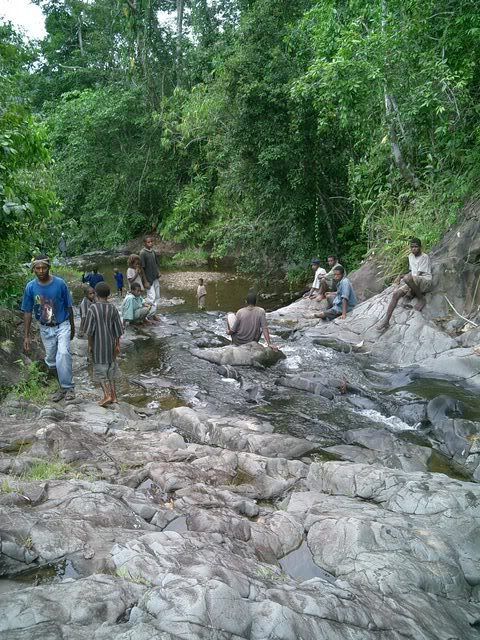
debbie and i
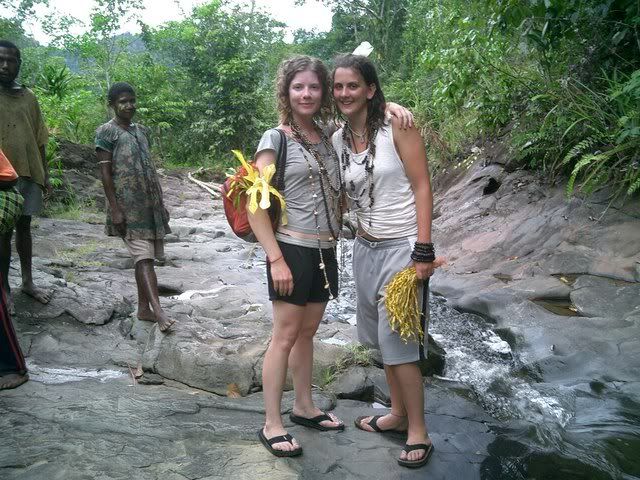
the village elder and her son. he is working on building a facility for eco tourism and other people who want to take trips similar to ours. his english was great.
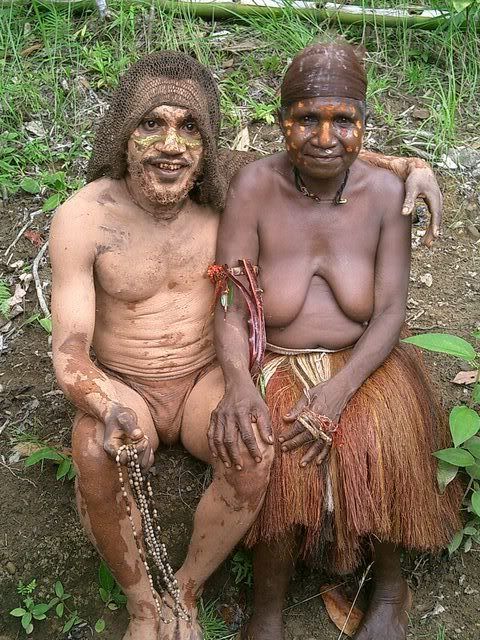
at another small village. the men teach the village boys to fish, hunt and perform the ceremonial dances.
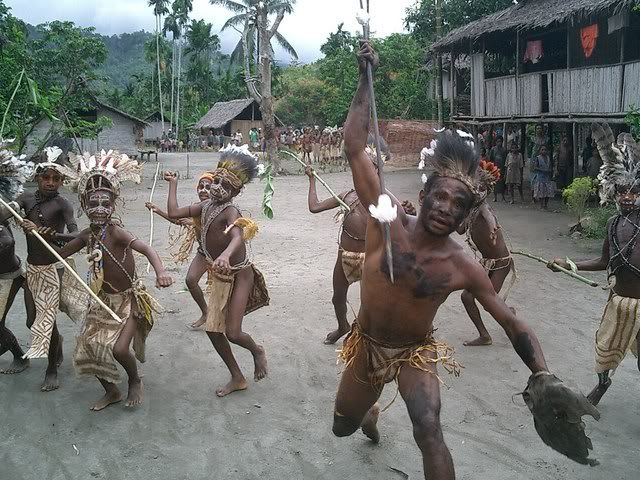
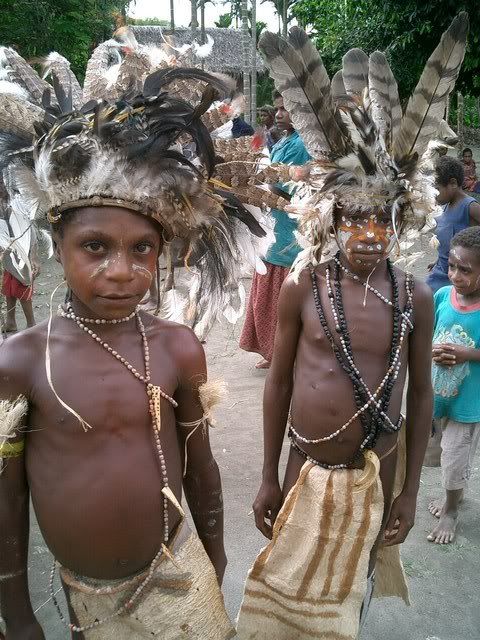
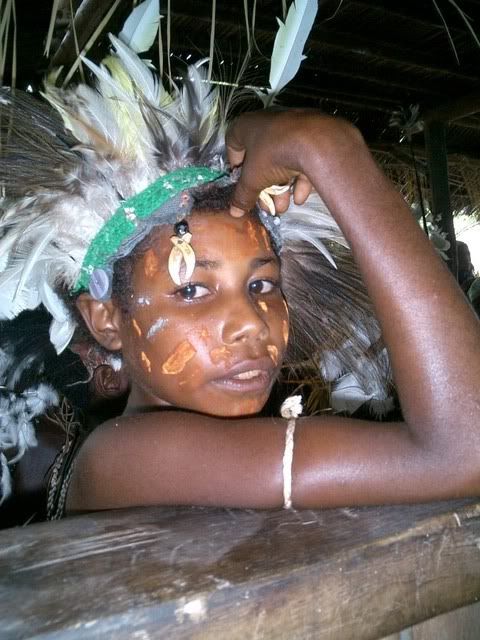
it's the first time she's ever seen a digital camera. how amazing.
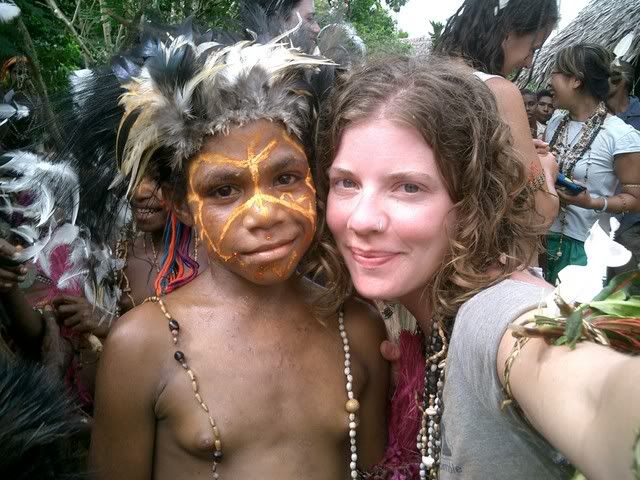
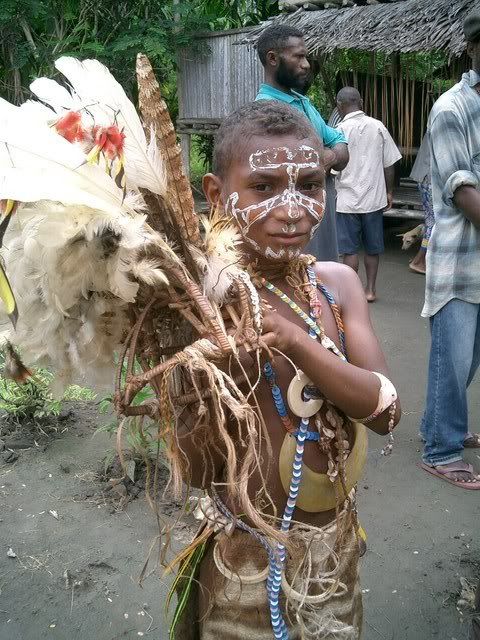
heading on to the next village.
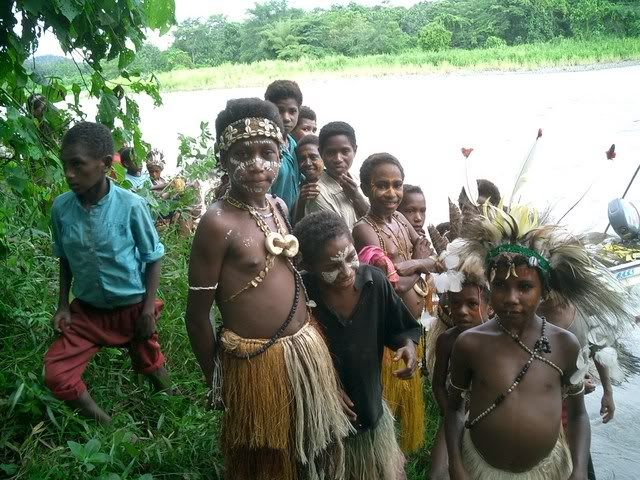
at times it felt like it was a whirlwind trip but we wanted to see and meet as many people as possible. having a group of foreigners visit is a rare opportunity for them. unfortunately we weren't able to spend too much time with each village.
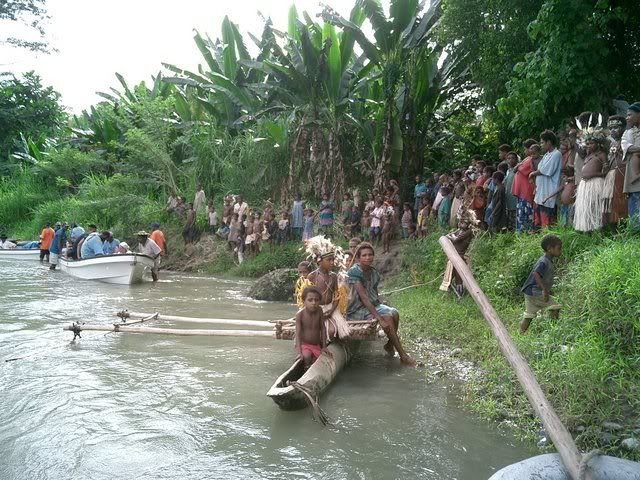
a brief stop at a village nestled in a beautiful forest. this environment dictates that their tribal dress will be rich with greens.
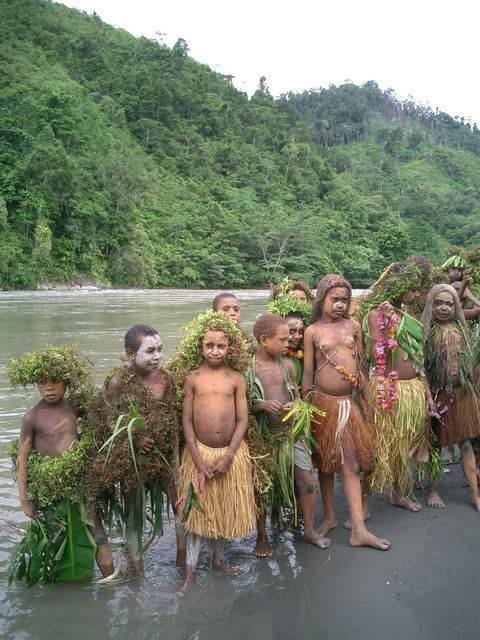
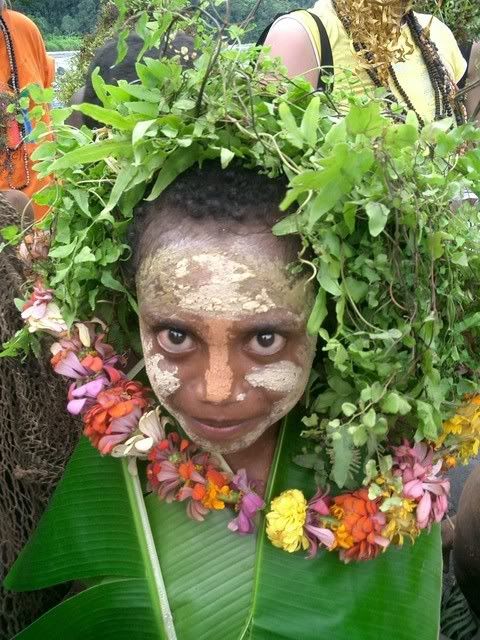
after we finished celebrating the nange festival that night in pema village. this is robert, he accompanied us the entire time. amazing how knowledgable he is about nature, tribal customs and also the world. he's been trained in drama outreach and writes and choreographs plays that are used to educate villagers about all sorts of things from aids to dental health. he speaks 5 languages fluently but can carve his own boat and kill and prepare a wild boar. what an admirable blend of talents and interests.
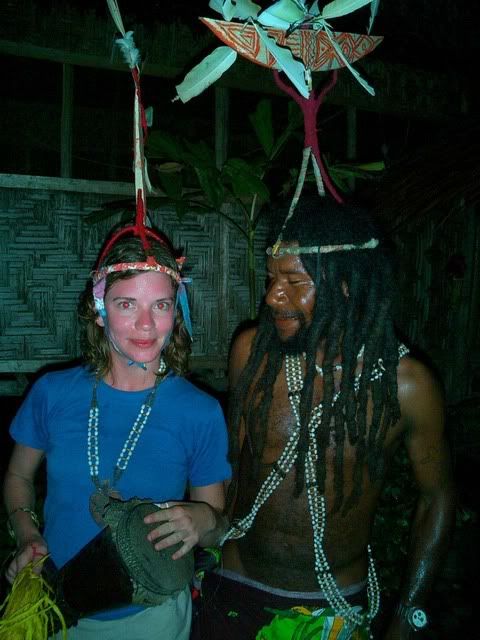
the boy in the rear wearing the jean shirt was incredibly timid but friendly. we chewed betel nut together and chatted during the festival. he gave me a beautiful necklace on which hangs a skull and crossbones wooden pendant that he carved. it is so well-crafted.
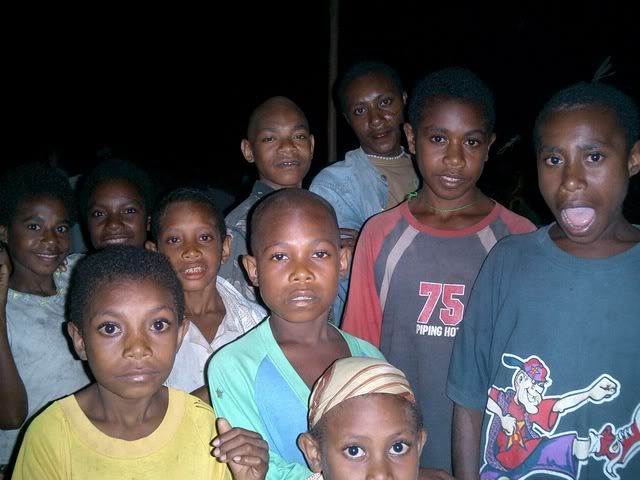
wild pigs are everywhere and they use them for all sorts of things...tusks for jewelry, skin for leather, meat for food...
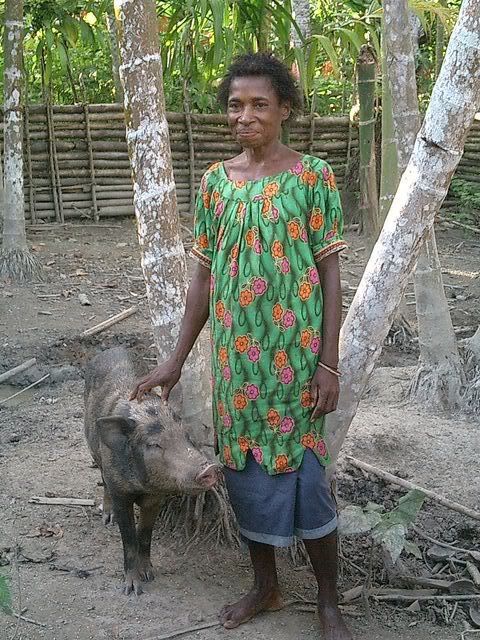
as a huge token of friendship, they killed and presented us with one of their pigs.
how sweet...
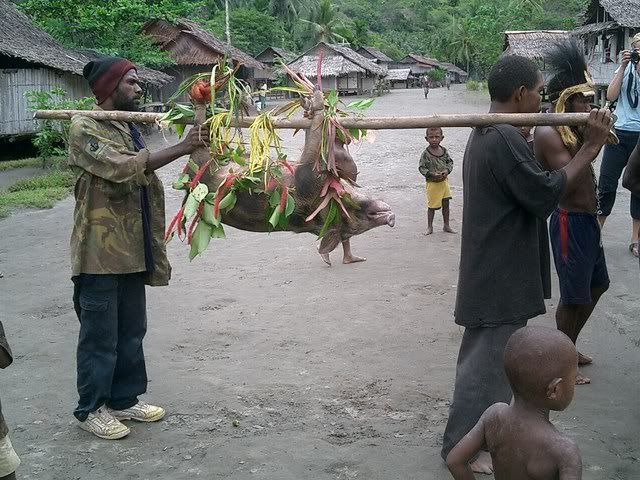
these men chopped banana trees, tore the leaves into strips to use as rope and whipped us up a raft in about 30 minutes. this is the infamous boat off of which i fell when we collided with some rocks down the river. everyone was impressed with my rafting prowess as i swam upstream, scaled some rocks and climbed back onto the raft. afterwards, my thumb wouldn't move...in retrospect it was quite a life-altering moment.
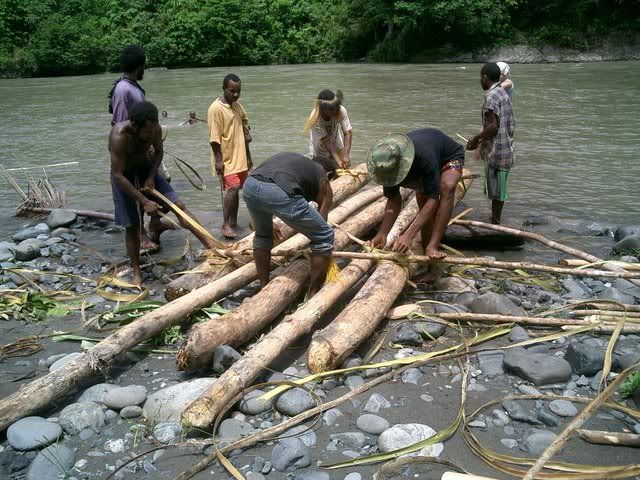
some kids saying goodbye. the boy on the far left is named lucas. his english was great. we pal-ed around quite a bit together. as i waited to set off i noticed a raucous wound on his shin where he had cut himself with an ax. it was infected and covered with flys. i urged him to clean it as i found my first aid kit. i used the ointment and dressings for my thumb stitches to bandage him up. his mother was so incredibly thankful, she squeezed my hand and looked me in the eye with extreme relief.
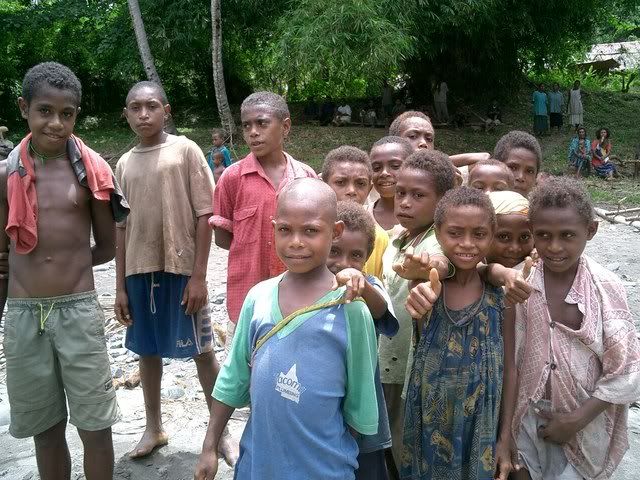
looking down on zare aingse school.
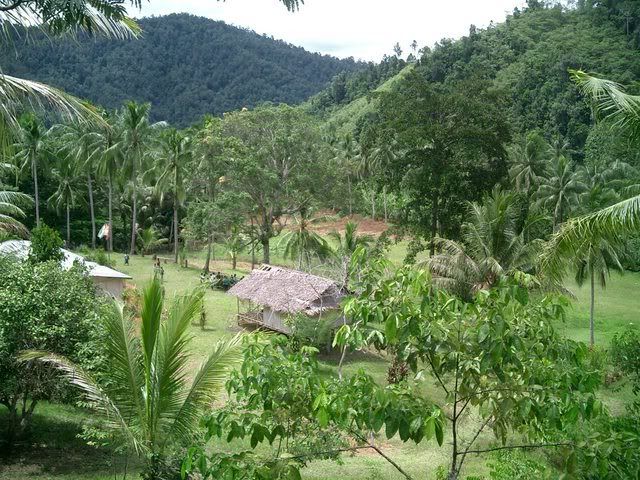
the back of a classroom.
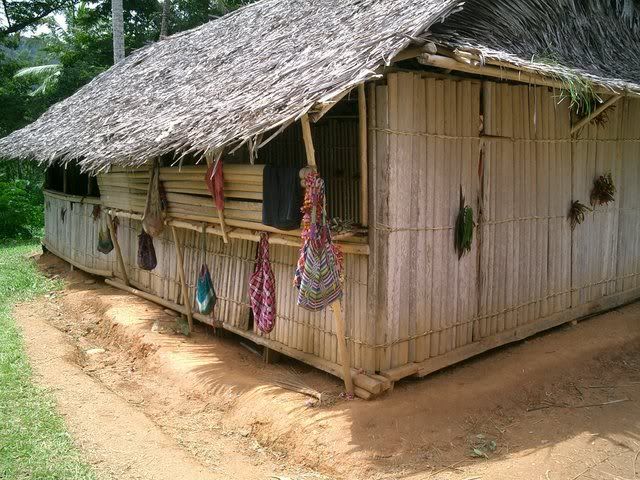
the building where the older kids have class. elementary through high school kids attend this school.
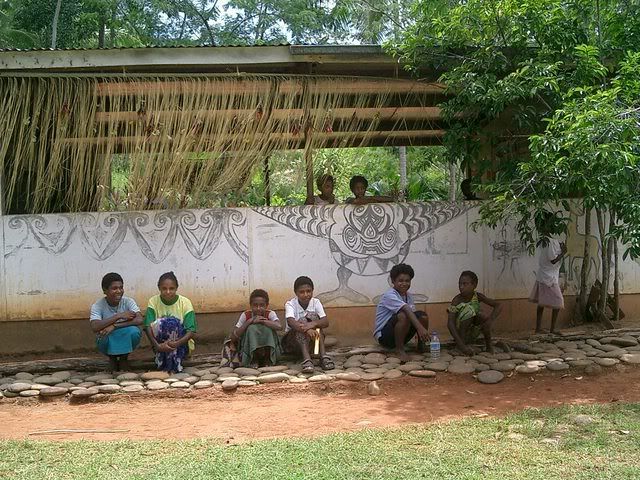
planting a palm on the path from the school to the river.
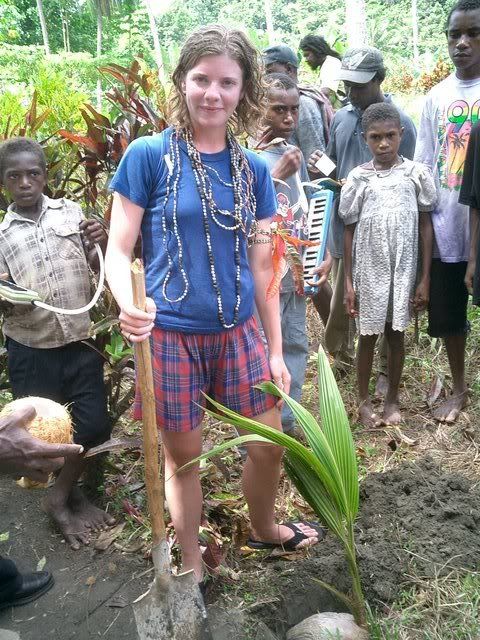
en route back to bau village.
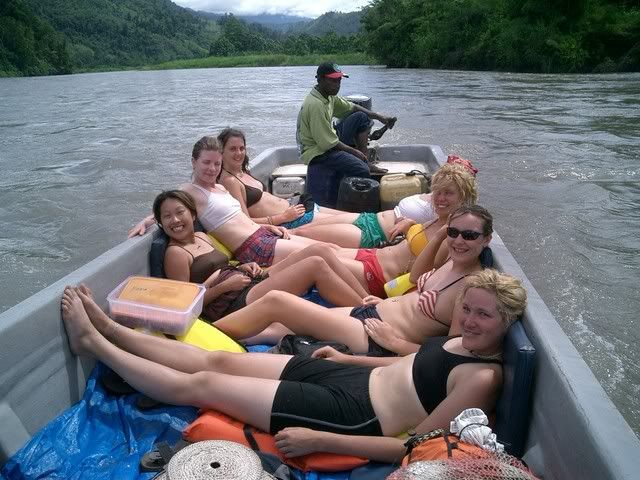
we carried the pig back to bau, our main hub, where chef giri cooked it up into delicious stews, skewers with peanut sauce and shredded meat. giri is a local who studied nutrition and culinary arts on a government scholarship in the capital. he does village outreach in which he teaches the women about dietary needs and food safety. he prepared 3 meals a day for us, including some dense delicious biscuits cooked over fire each morning. he was an absolute nut so we got along really well. he loved to dance and play drums so quite frequently it was he and i sneaking into the circle of celebration during community events.
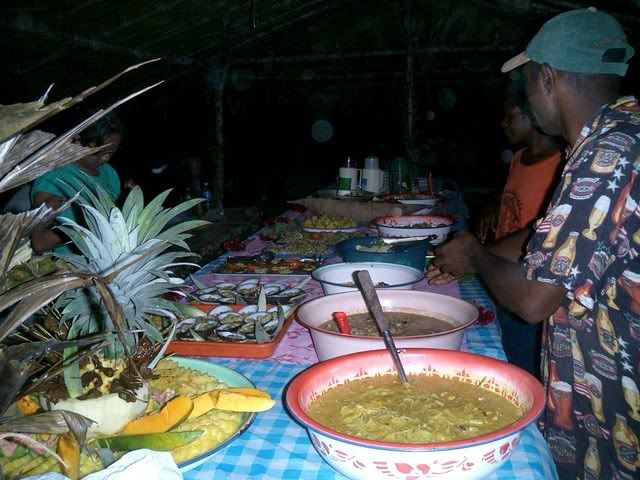
as they have no electricity or running water, this is the kitchen where all of our meals were prepared over a fire. what an amazing feat.
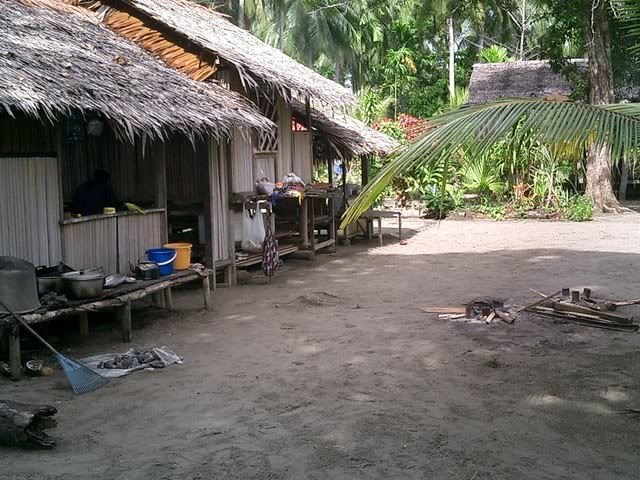
the dishes were then dragged down the shore to the water's edge where they were scoured with sand and rinsed in the ocean.
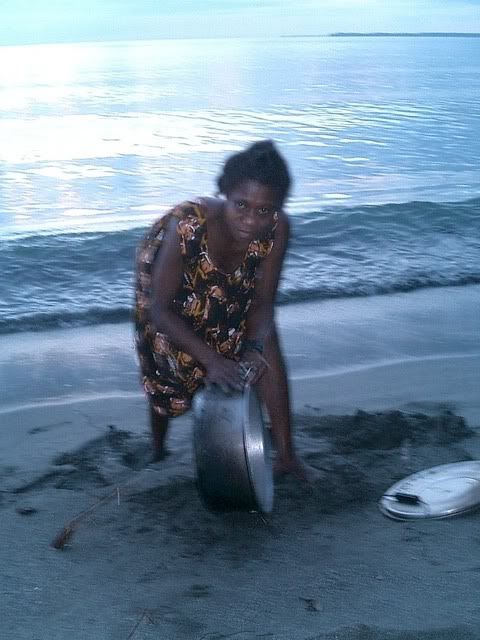
almost every night after dinner was spent playing on the beach with the kids.
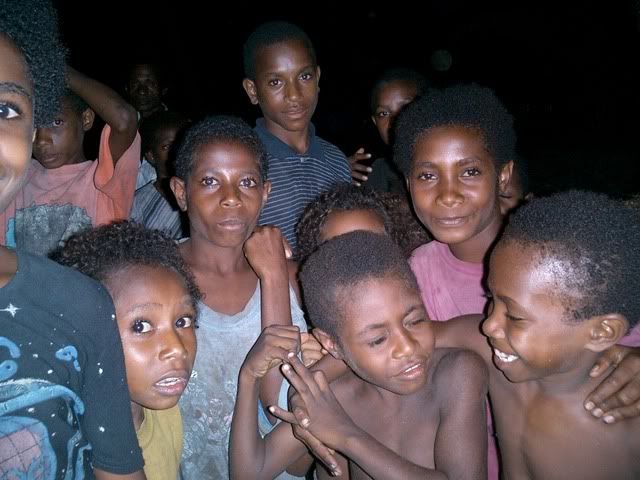
i learned tons of songs and handclap games.
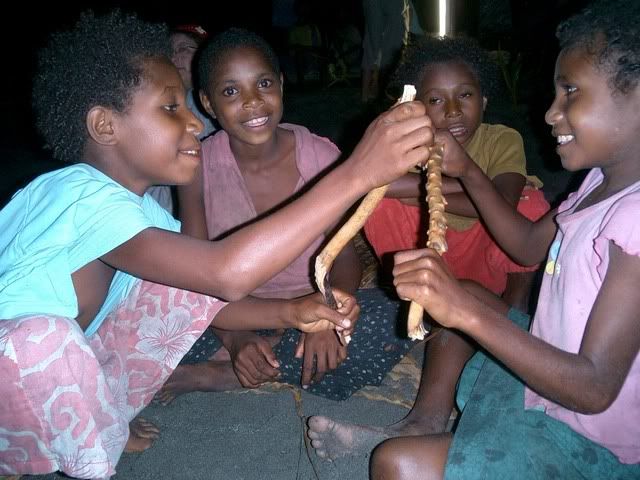
it was absolutely heartbreaking to say goodbye to the kids we had spent 2 weeks bonding with in bau village. they were unabashedly curious, and willing to share their culture and what few belongings they had with us. we became bound by our mutual interest in each other, realizing we all stood to gain by the exchange of ideas and thoughts and friendship. i was amazed at how mature many of these children seemed, though their lives are such that their survival depends on their ability to care for others and provide, which may be why they were so nurturing to us. that being said, they also don't sacrifice their childhoods...the community comes together to play games and stoke their youth often.
this is the goodbye ceremony at eu primary, where we spent most of our time.
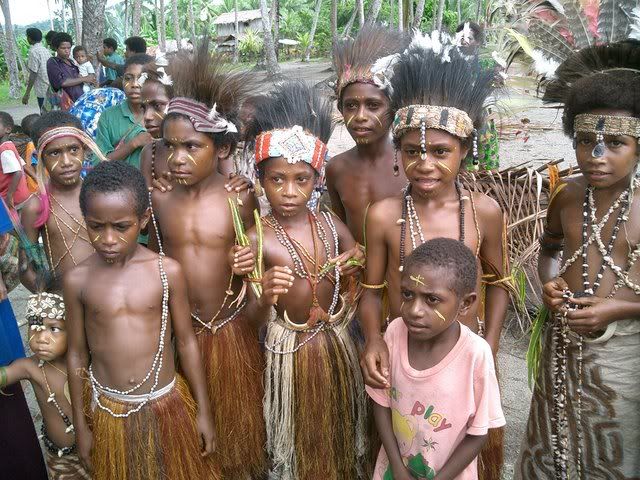
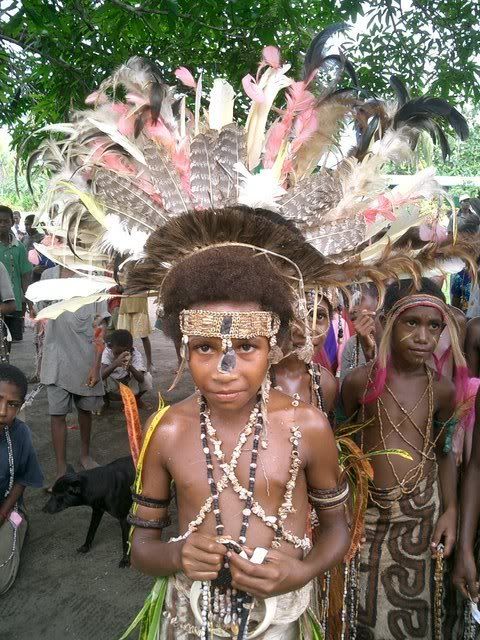
they kept saying how sorry they were that they had nothing to give us in return for the supplies that we brought and the work we did with the school. during the closing ceremony i spoke for our group explaining that they had given us so much, and although we couldn't hold it or see it we would always have it in our hearts and minds. their spirit and kindness and our experiences will never be forgotten.
they also presented us with so many gifts. pounds and pounds of jewelry, all made from readily available supplies like shells, plants, seeds, animal bones and flowers. and some of the kids we had each truly grown close to gave us special items like hand-painted bowls made from coconut shells, lengths of decorated paper made from banana tree bark, feather jewelry, fruits, shells, hand-carved chopsticks. i couldn't hold back the tears as the children walked down the line we had formed shaking our hands, some with watering eyes. these momentos will forever remind me of the strength of friendship and the importance of human interaction.
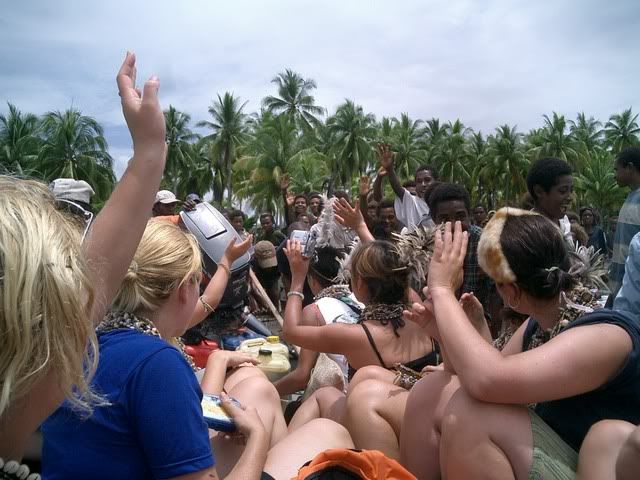
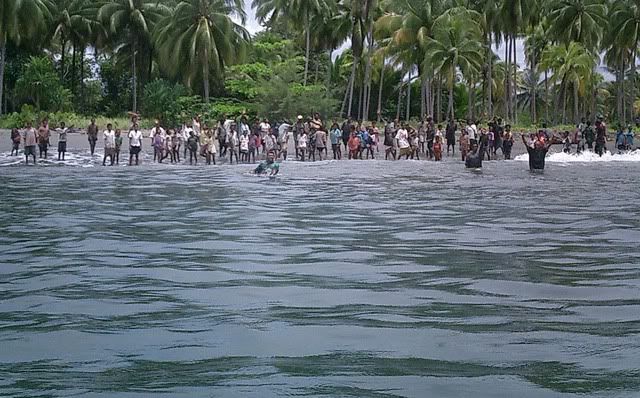
the view from our hut.
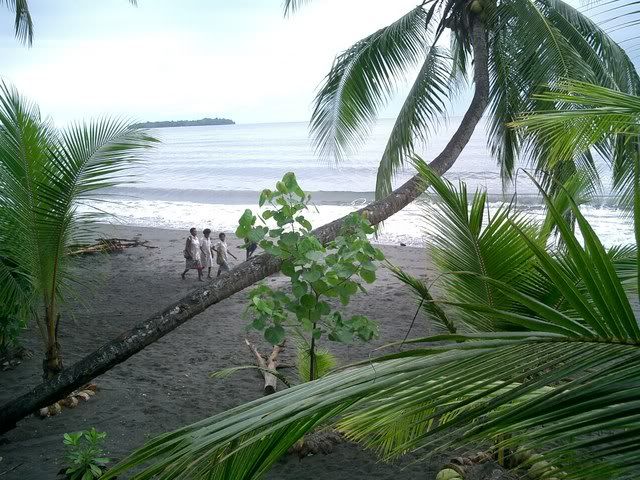
saying goodbye at the village.
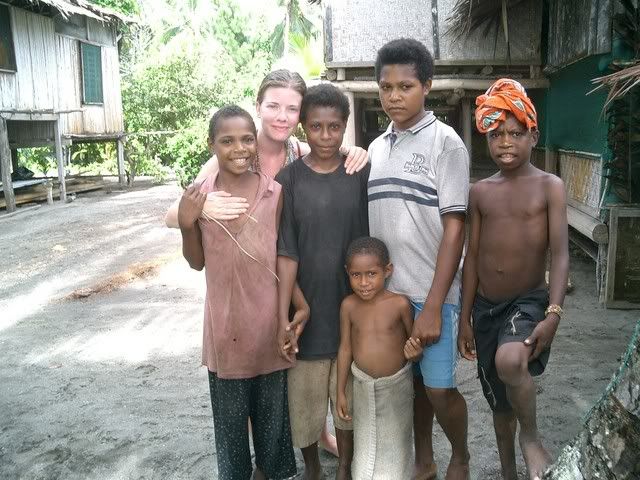
a school in kamiali where we paid a brief visit.
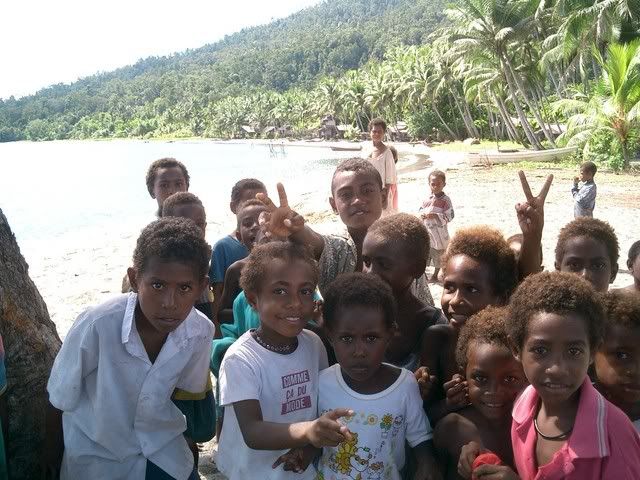
the kids were elated to be skipping class to talk and swim with us.
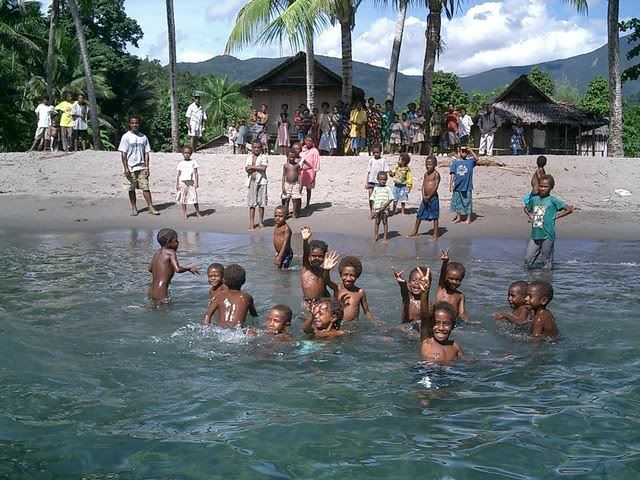
it was our last day at the beach before heading inland to stay at a village in kamiali.
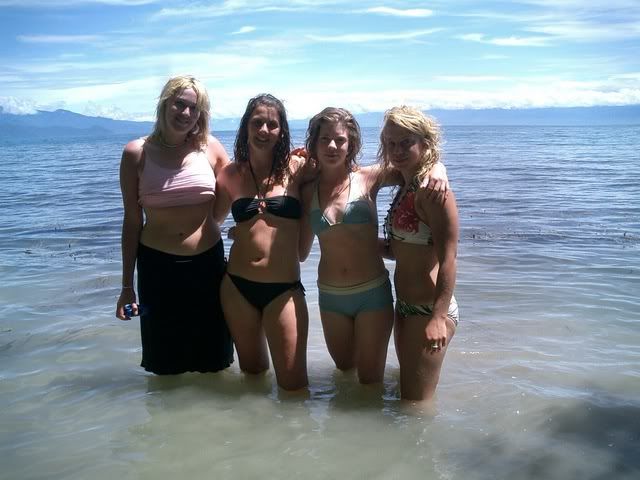
a little inland is where we encountered these guys stalking through the woods. initially we were a bit freaked, until we realized they were friends of robert's who were sent out to scare us. it worked.
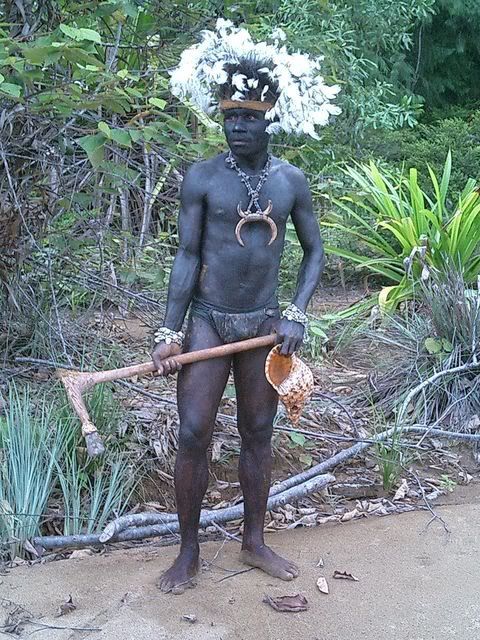
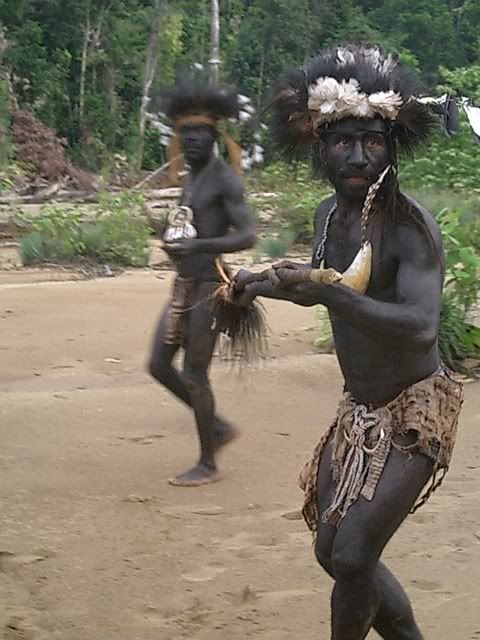
this is debbie, emma and i sporting hair that has not been washed in literally 2 weeks. the bugs were attracted to the shampoo smell and we're lazy so it worked out for the best. we are at a hotel in lae, png's 2nd largest city. we treated the locals who accompanied us on the trip to pizza and some beer [the first we'd had in 2 weeks. S&P is their main brand] and they treated us to a concert with many village groups singing and dancing.
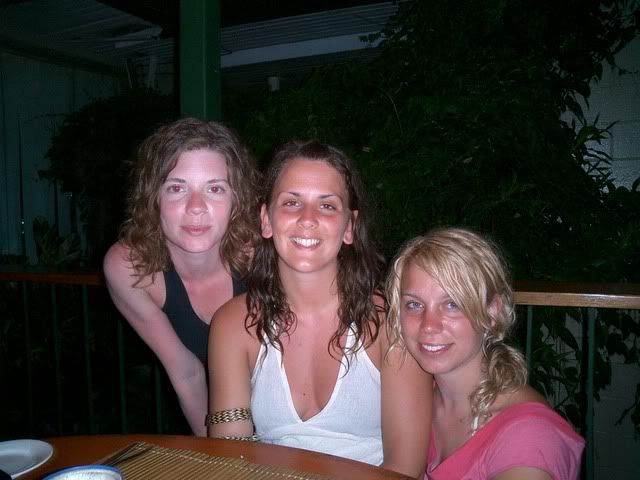
the next day we headed back to port moresby, the capital, for a bit of sightseeing. this is us exhausted on the steps of parliament. it was a saturday so the building was locked but, indicitive of many of the corruption problems facing the nation, a security gaurd offered to let us in for a small fee wink, wink. we had a discussion about it and i refused to allow the others to pay this man a bribe which we be contributing to the oppressive system the country's people are struggling so hard against.
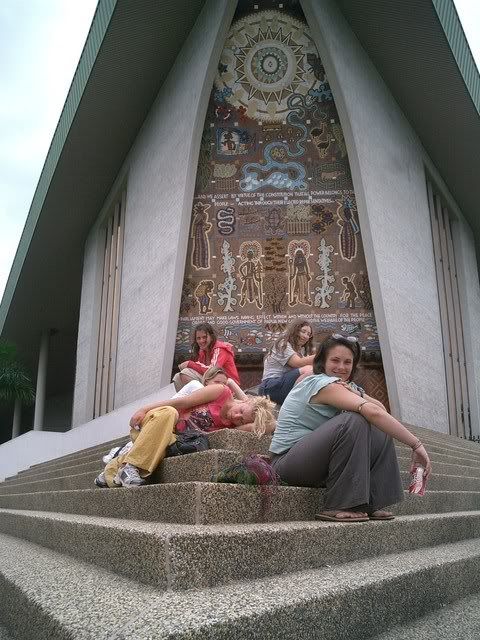
crime in the capital is horrendous as the nation makes a push towards internationalizing and industrializing its economy. it was like being on the front lines of a battle against poverty where they are striving to climb out of third world status. it's a war zone i couldn't imagine living in, but once you've left the city for the villages the mood completely changes. the strong sense of community is unbelievable. they want to learn and travel and educate themselves so that they can return to their home-villages and better life for everyone there. it is such a self-less way of thinking that it forces you to reconsider many of the ideas you have about loyalty and friendship and family. their belief in humanity colors everything they do and its such a far cry from the individualistic and independant ways that westerners so highly prize. their interdependence is refreshing, eye-opening and thought-provoking.
they are genuinely good people.
